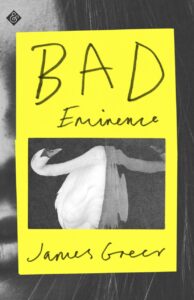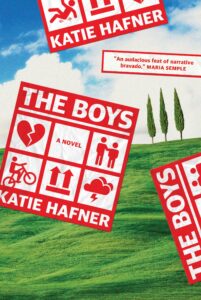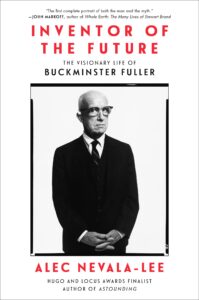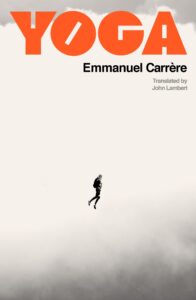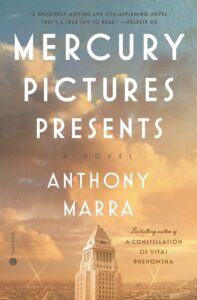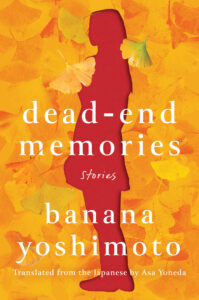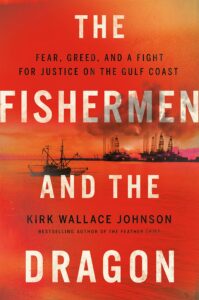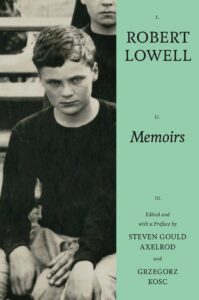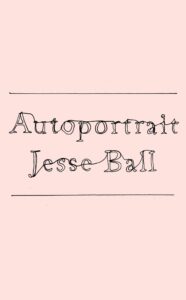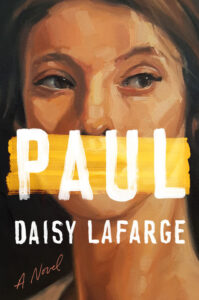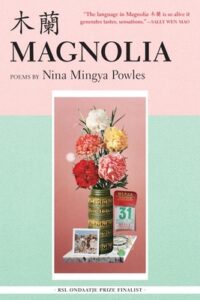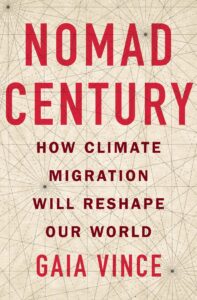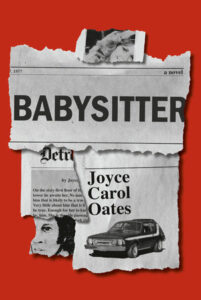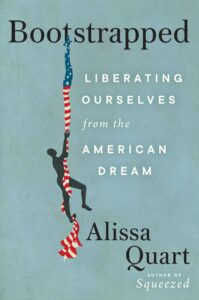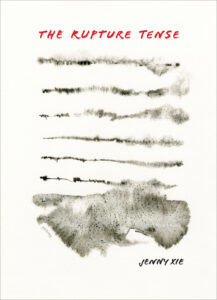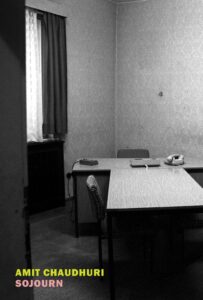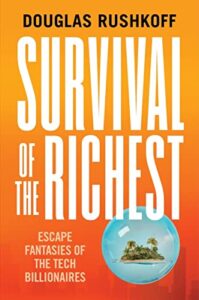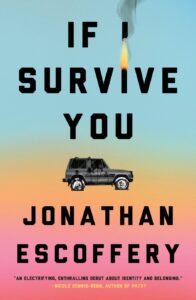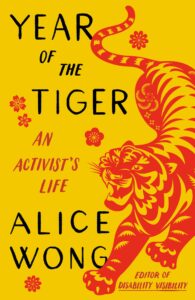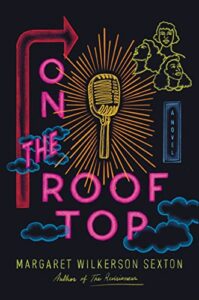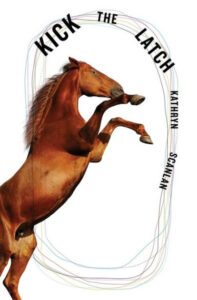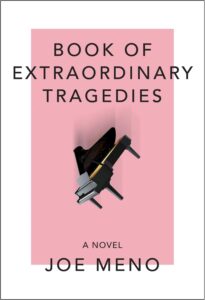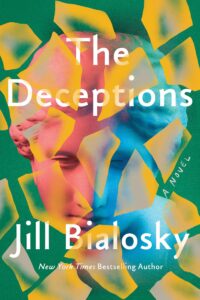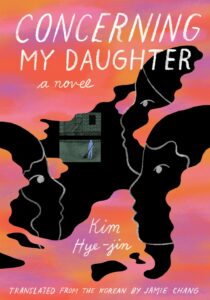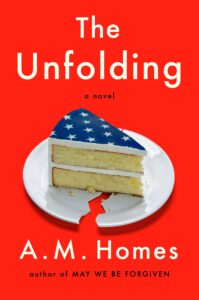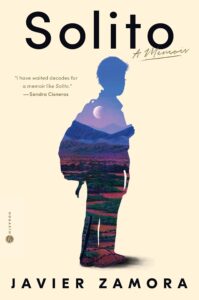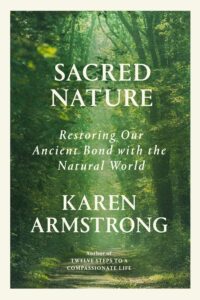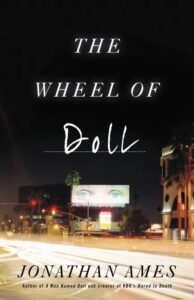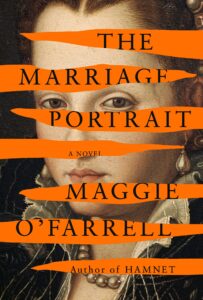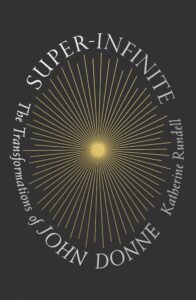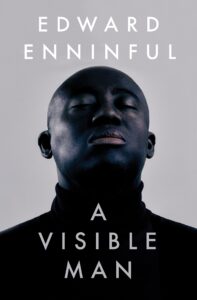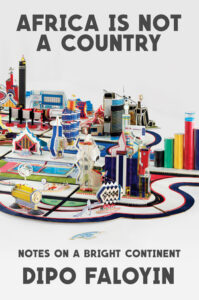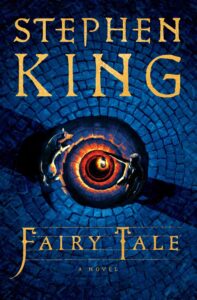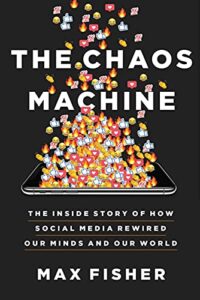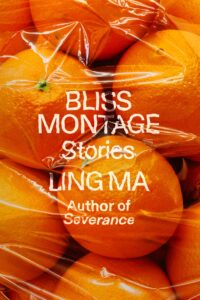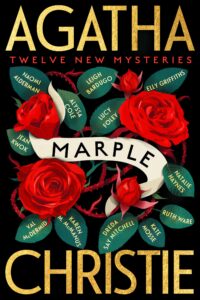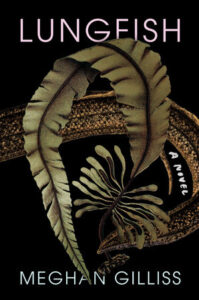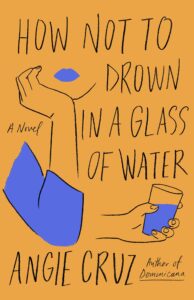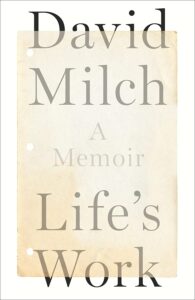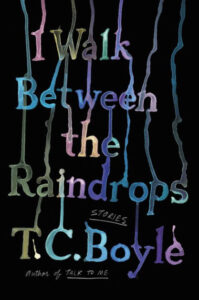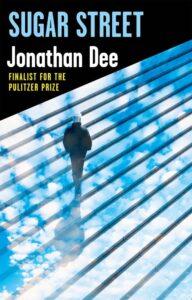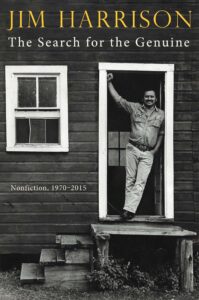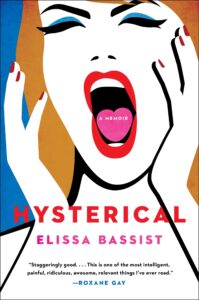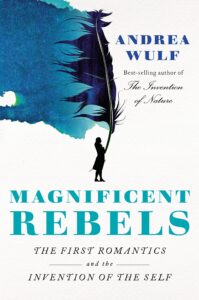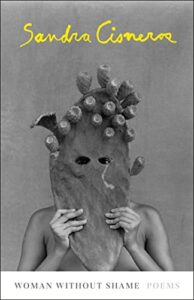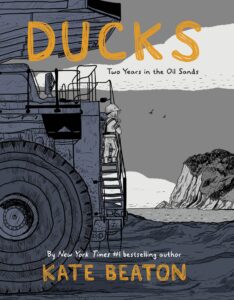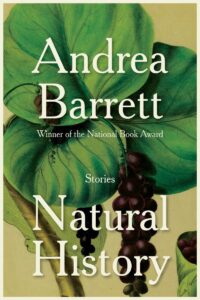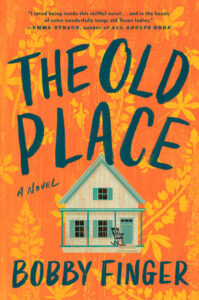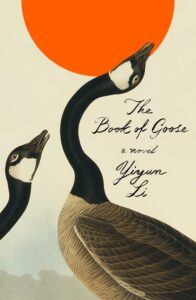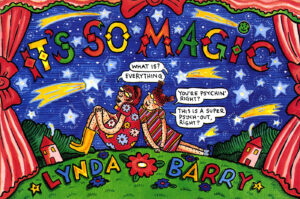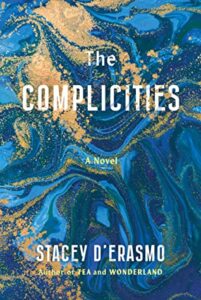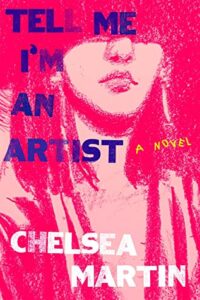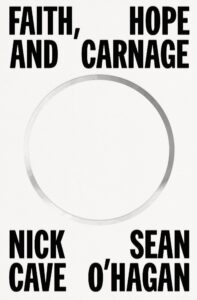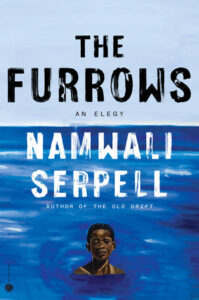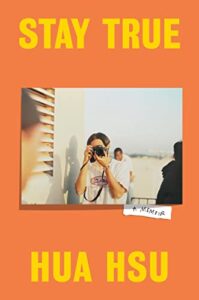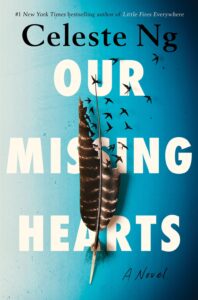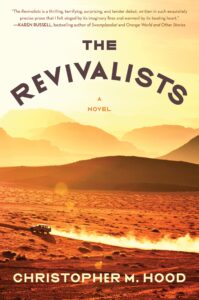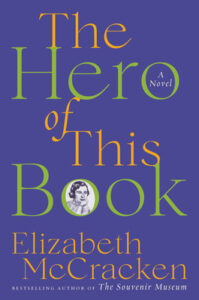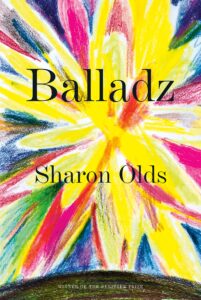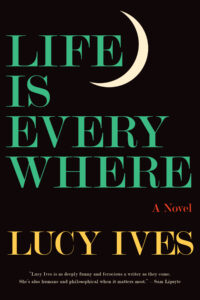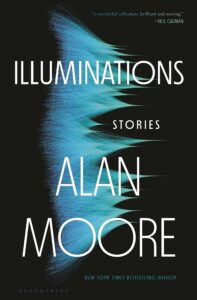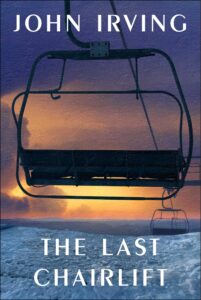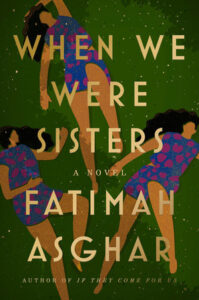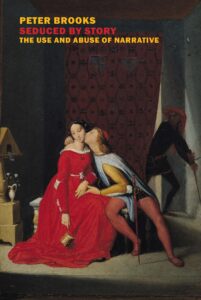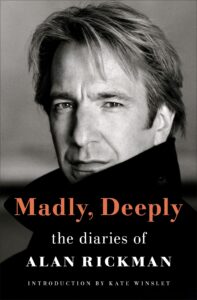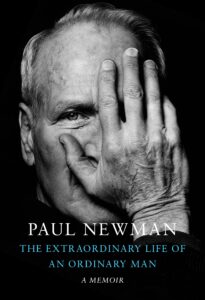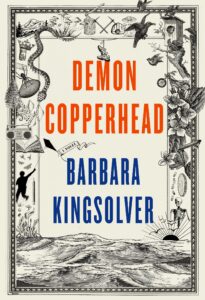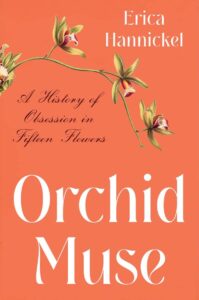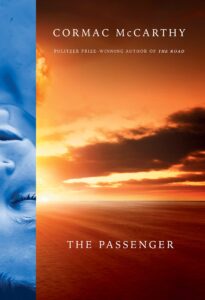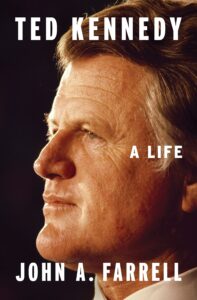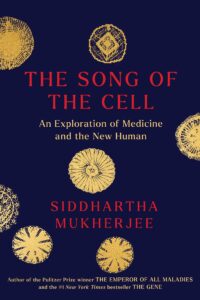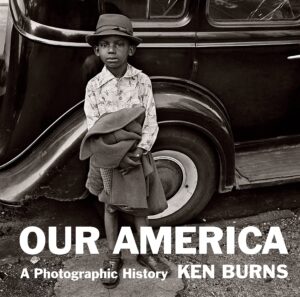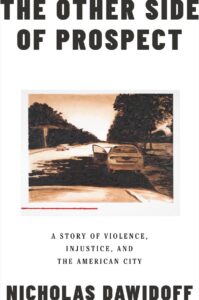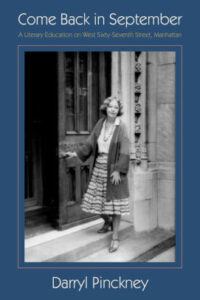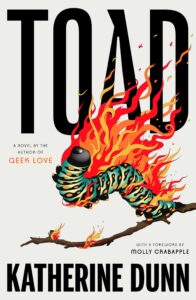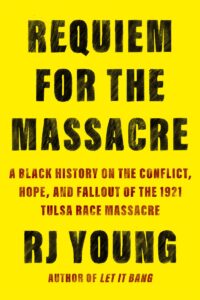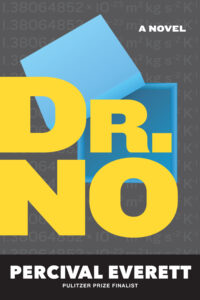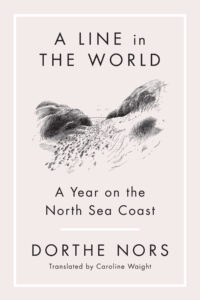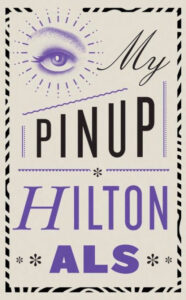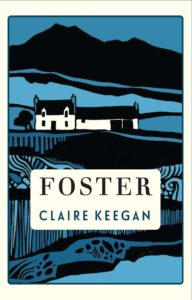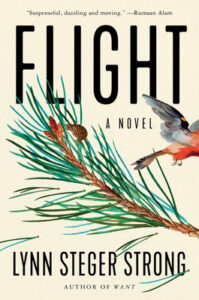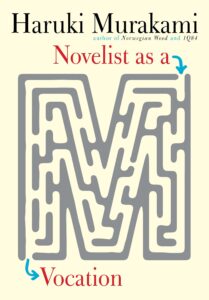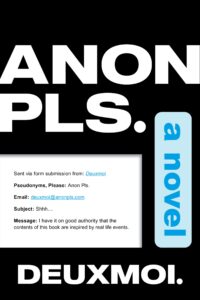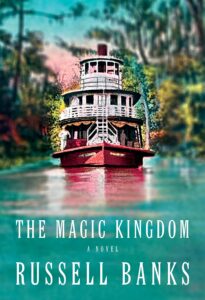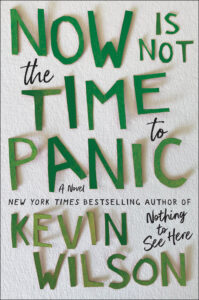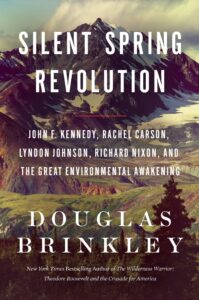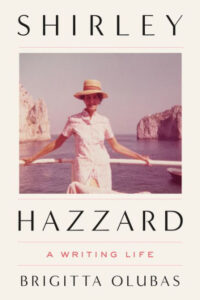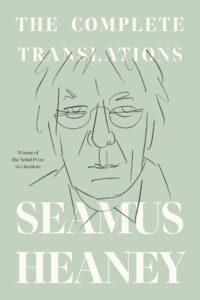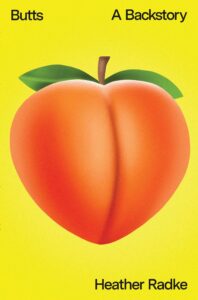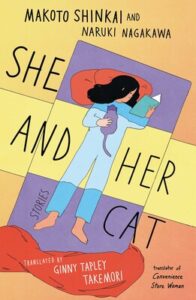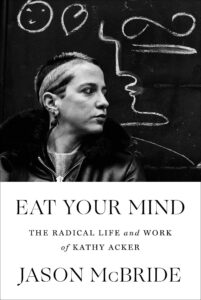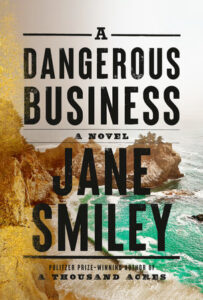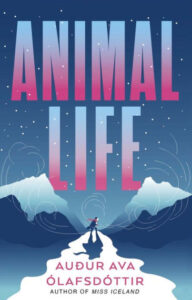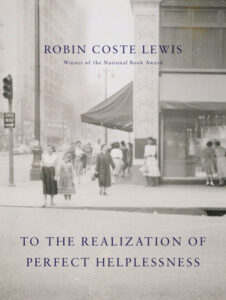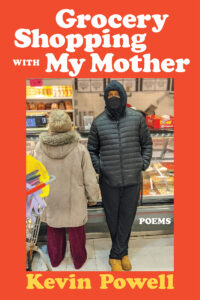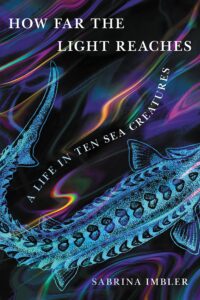Halfway through, and 2022 is looking like another bad year. (That is, if you care about reproductive health and bodily autonomy, the environment, global peace, affordable living, sane public health policies, not being gunned down in a school, supermarket, or literally anywhere, and/or the future of democracy itself.)
But you’re not here to think about any of that. You’re here because you’ve already read all the best new books from the first half of the year and you’re ready for more. (Right? Right.) For our second Big Preview of the year, we’ve picked out the 230 books being published between July and December that we’re most looking forward to. No matter what kind of a reader you are, or what kind of a year we’re having, you’re sure to find something to interest you here.
JULY
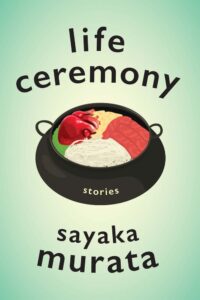
Sayaka Murata, tr. Ginny Tapley Takemori, Life Ceremony
Grove, July 5
Sayaka Murata’s first short story collection translated into English (by Ginny Tapley Takemori), Life Ceremony is just as weird as her novels. With characters that inhabit the same uncanny valley as Keiko, the “Smile Mart” employee from Convenience Store Woman who has found her life’s purpose in the orderly comings and goings of the store, or Earthlings’ preteen Natsuki, who understands her stuffed hedgehog is from another planet and deadpans through incredible violence, the characters here are loners, up against conventions and expectations that cast them as outside traditional. Murata makes us question our understanding of what makes us human (or, in the case of “Lovers on the Breeze,” a window curtain). –Emily Firetog, deputy editor
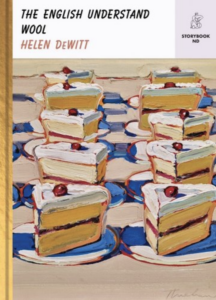
Helen DeWitt, The English Understand Wool
New Directions, July 5
Helen DeWitt’s The Last Samurai was a stroke of genius. I have thought about that novel a lot this year, and I don’t think I will ever understand how she managed such a masterful control over the narrative. After that, I will read anything Helen DeWitt puts her name on, so I’m particularly stoked for the release of her latest, The English Understand Wool. (What a great name!) This novella will follow a 17-year-old whose parents have very specific rules, mostly concerned with “good taste.” But that might all go right out the window during annual Ramadan travels, when finds herself alone in New York. Still not quite sure what this is going to be about? Same. A visit to the New Directions website tells me nothing else, but I did stumble upon Helen DeWitt’s official bio, the last line of which reads: “She has been based in Berlin since 2004, but also spends time at a cottage in the woods of Vermont improving her chainsaw skills.” Her chainsaw skills! I realize she means that literally, but it also applies to her work on the page. Helen DeWitt has this magical ability to cleanly cut open a story and the hearts of her readers along with it. –Katie Yee, associate editor
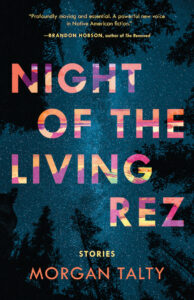
Morgan Talty, Night of the Living Rez
Tin House, July 5
Morgan Talty’s debut collection of linked stories, all narrated by a character named David, highlights the contemporary tales of Talty’s tribe, the Penobscot. These characters and their world shimmer with the precise details Talty so expertly showcases—the specific childhood cruelty, the expression of scarred grief. This is a stunning debut, both dark and tender, and reminder of the necessity and rewards of a diverse range of Native voices in the publishing industry. –Jessie Gaynor, senior editor
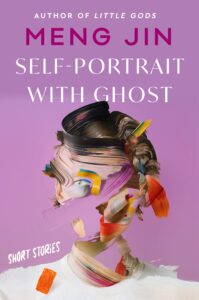
Meng Jin, Self-Portrait with Ghost
Mariner, July 5
In her debut novel, Little Gods, Meng Jin took us from China to America and back, and our protagonist was preoccupied with cobbling together an understanding of her family. In her forthcoming collection, Self-Portrait with Ghost, that close observation is turned inwards (as the title might suggest). The narrators in these pages are painfully honest. Look: “With previous lovers, I’d eaten up stories of other women hungrily, hurting myself with jealousy until it felt like love.” Ouch. Hurt me here!
Layered in these tales is the way the past continues to haunt—both in ways we accept (exes) and in ways that verge on the surreal (ghosts). The eponymous story takes place outside the public library, where the narrator’s dead aunt is waiting for her so she can criticize her writing. Yes, it’s safe to say these stories pack just as much of an emotional wallop as her first book. –KY
James Greer, Bad Eminence
And Other Stories, July 5
This sounds extremely fun: a narcissistic translator whose twin sister is a movie star is offered a job translating “an Extremely Famous French Writer who is not in any way based on Michel Houellebecq,” but when she takes it, the unravelling begins. The publisher calls it “at once an old-school literary satire in the mode of Vladimir Nabokov as well as a jolly thumb in the eyes of contemporary screen-life and digital celebrity,” which is about as delicious as it gets for me. –Emily Temple, managing editor
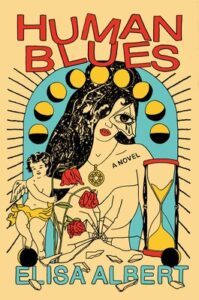
Elisa Albert, Human Blues
Avid Reader Press, July 5
Feminism has failed us. What women were promised has not come to pass: there seems no real, tangible route to “having it all.” I haven’t seen enough written about what happens when you want both a family and a life of your own, but Human Blues is a good start. The story centers on Aviva Rosner, a singer-songwriter who craves a baby in addition to her lauded musical career, and who pours her angst and longing into her fourth album. Told in chapters of Rosner’s menstrual cycles, the novel does a thrilling job of writing through womanhood, the complexities of femininity, and what it means to get what you want, or what you thought you wanted. –Julia Hass, contributing editor
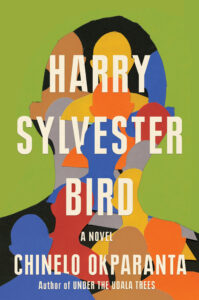
Chinelo Okparanta, Harry Sylvester Bird
Mariner Books, July 12
Okparanta’s satirical novel follows a decade in the life of Harry Sylvester Bird, a young white man who is convinced he’s Black. Harry’s parents are racist, bordering on cartoonishly evil, and the world is an alternative-current reality, including COVID protocols like vaccination checkpoints. After graduating high school, Harry, now G-Dawg, fully embraces his Black identity and leaves his small, backwards town, moving to New York. He problematically attends college on a white-supremacist scholarship and then falls in love with Maryam, a student from Nigeria. Okparanta weaves a narrative that’s uncomfortable for its truths—the limits of allyship, the way in which white supremacy is ingrained in every gesture. It’s an ambitious book that shines a light on all the worst parts of our current cultural moment, a sort of masochistic romp around racism. –EF
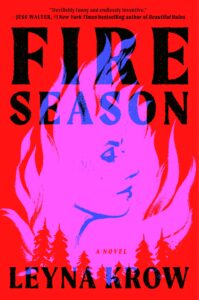
Leyna Krow, Fire Season
Viking, July 12
Fire Season is a smoldering visitation of the American West, a novel about three opportunistic figures who converge following the great fire of 1889 in Spokane Falls: a conman, a bank manager, and a woman who can see the figure. Sparks fly as they collide with one another, and it’s not long before their simmering tensions, attractions, and conflicts lead to a conflagration most might not see coming, and from the ashes of which most will never rise up again. –Olivia Rutigliano, CrimeReads associate editor
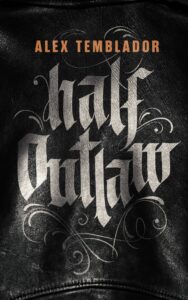
Alex Temblador, Half Outlaw
Blackstone Publishing, July 12
If you were a fan of Sons of Anarchy but really wished there had been a biracial female narrator putting her own spin on toxic masculinity and bigotry, then Half Outlaw is the book for you. And me. I really enjoyed this book. Alex Temblador’s orphaned protagonist was raised by her outlaw biker uncle and his crew, but takes after her Mexican father and never felt fully accepted by the casually racist motorcycle club (the author wrote Half Outlaw partly to explore her own biracial identity). After her uncle dies, she’s called back to the club for one final Grieving Ride, and must reexamine her complicated relationships with the men who raised her, imperfectly but with love. –Molly Odintz, CrimeReads senior editor
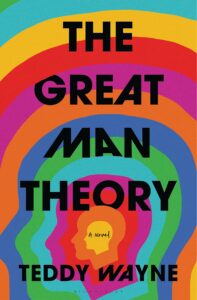
Teddy Wayne, The Great Man Theory
Bloomsbury, July 12
Reading Teddy Wayne’s latest novel—about a 40-something father, adjunct, and writer of cultural commentary no one much wants to read—is, at times, painful. As a character, Paul evokes pity, irritation, and, at times, grudging identification. For all the discomfort, though, I loved The Great Man Theory, both because of Wayne’s knack for dark humor and because its plot clicks so satisfyingly into place. As Paul—a self proclaimed Luddite with a newly-acquired habit of writing lengthy internet comments on a liberal news site and obsessively checking their likes (while teetering on the edge of the Intellectual Dark Web)—falls deeper into the despair of political impotence and the punishing gig economy, he devises a plan to cement his legacy, make his daughter proud, and save America (maybe). –JG
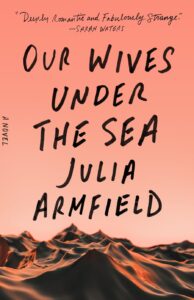
Julia Armfield, Our Wives Under the Sea
Flatiron, July 12
Leah is a marine biologist who is used to undersea expeditions, but when she and her colleagues embark on what should be a routine field excursion, their vessel sinks and they are stuck at the bottom of the ocean for months. When Leah finally gets free and returns home to her worried and loving wife, Miri, she is changed. The woman Miri once loved is now comprised of silence, darkness, and weight, refusing to reveal what happened under the water, turning inward and away from Miri. Our Wives Under the Sea meditates on whether it is possible to share the full truth of our hearts with others, what it means to leave, and most of all, what it means to stay. –JH
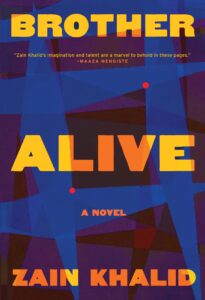
Zain Khalid, Brother Alive
Grove Press, July 12
How does one even begin to describe the intricate web Zain Khalid has woven in his wondrous debut? This story takes us from New York City to Saudi Arabia and touches on themes of family, queer desire, capitalism, identity, and the unimaginable things we might do for survival. On the surface level, Brother Alive is a family epic about three adopted brothers living above a mosque in Staten Island: Dayo, Iseul, and Youssef (our guide for much of this journey). Their guardian, Imam Salim, pushes them to excel, but the secrets of his past force him to keep them at a distance.
There is one other very important figure worth mentioning: the eponymous Brother, sort of an imaginary friend that accompanies our narrator throughout his life. (Of Brother, he says, “When we acquire language, we are each other’s first word.”) He takes the shape of various creatures, and he feeds off memories and literature. (At some point, Italo Calvino’s If on a winter’s night a traveler is referred to as “a book of beginnings, the way a child’s life might feel.” A love of language is a gift throughout this novel; Zain Khalid crafts each line with care and a masterful sense of command.) Even in the first section of the novel, in the glow of the main characters’ younger days, Brother’s presence casts a shadow over everything. What exactly is Brother, you might be wondering. You’ll have to read to find out; the truth is more wild than you could possibly imagine. But what I will say is that, unbeknownst to Youssef at the time, Brother ties him to Imam Salim’s sordid past and the story of what happened to his birth parents.
Although this novel spans generations and continents, what is perhaps most striking is the intense intimacy that is present, too. The bond between the three boys is rendered so realistically here; their teasing, their warmth, and their obligation to one another leap off the page. The majority of the novel is also framed as a story being told to Youssef’s niece (and the second section, a break in the narrative, is a letter to the boys from Imam Salim). There is an incredible generosity and tenderness in the telling. –KY

Rebecca Miller, Total
FSG, July 12
The first collection of short fiction from acclaimed indie film director Rebecca Miller (The Ballad of Jack and Rose, The Private Lives of Pippa Lee) in over 20 years, the seven brilliantly knotty and piercingly intimate stories in Total depict characters undone, temporarily or irreparably, by obsessive love. In “Mrs. Covet,” an overwhelmed mother of three becomes unnerved by the uber-competent housekeeper’s bond with her infant son. In “Vapors,” the appearance of an emotionally abusive former lover sends a woman on a reverie through her past relationships. For me, the collection’s standout is the title story, which begins with a sci-fi premise (advanced pleasure cell phones that cause heartbreaking birth defects) and becomes a sweetly tragic tale of misguided familial love and lost innocence. –Dan Sheehan, Book Marks editor in chief
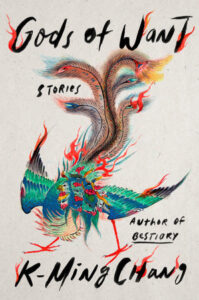
K-Ming Chang, Gods of Want
One World, July 12
When I read K-Ming Chang’s debut novel, Bestiary, I was floored. She has this memorable way of marrying myth with a story about migration, mothers and daughters, queerness, and long-buried family secrets. Her new story collection, Gods of Want, lives in a similar realm and reaffirms her place as one of our most enchanting storytellers today. In these pages, you’ll find ghost cousins, a lot of aunts, haunting mother-in-laws—essentially, women who are trying to make it work. From every first sentence, she has you hooked. In “Auntland,” the first story, we begin: “I had an aunt who went to the dentist and asked to have her tongue pulled.” Her tongue!
So much of the joy of reading K-Ming Chang’s stories is in her ability to constantly surprise. In “Xífù,” she starts with: “I don’t mean I want her to die. I’m just saying, what kind of woman pretends to kill herself six times?” Every sentence bites down. There’s a wry matter-of-factness that makes you buy into all the surreal elements. There’s a dark humor that makes you lean in closer. –KY
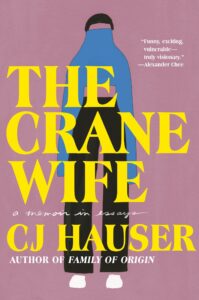
CJ Hauser, The Crane Wife: A Memoir in Essays
Doubleday, July 12
CJ Hauser’s Paris Review piece “The Crane Wife”—a beautiful essay about ending an engagement and a whooping crane—was a viral sensation when it was published in 2019. Using that essay as an anchor, Hauser’s new collection explores more stories of love, romantic and familial. There’s an essay about scattering her grandmother’s ashes in Martha’s Vineyard, where John Belushi is also buried—and the space between those two people. There’s a close reading of the movie The Philadelphia Story. There’s a meditation on what it means for a woman to live alone. While it’s always difficult to summarize an essay collection, what holds The Crane Wife together is Hauser’s unpacking of emotional truths: who do we love, and why, and what happens when they’re gone? When we’re alone? When we forget what it was like to love them? –EF
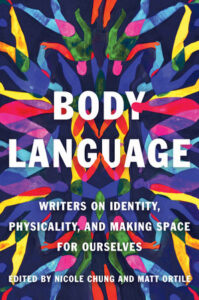
Nicole Chung and Matt Ortile, eds., Body Language: Writers on Identity, Physicality, and Making Space for Ourselves
Catapult, July 12
It’s no secret that I love a good essay anthology. Multiple minds and writing sensibilities circling around the same topic is one of my favorite reading experiences, and the topic of the body makes for particularly compelling fodder—as Melissa Febos wrote in response to the collection, “There is nothing more ordinary than living in a body, but so much about it can remain unspoken.” Body Language gathers 30 essays from Catapult’s archive that venture into that unspoken territory—with essays about weight, disability, athleticism, fertility, race, disordered eating, gender, and more—featuring writers you know and love and others you’ll be glad to encounter. –Eliza Smith, special projects editor

Erika L. Sánchez, Crying in the Bathroom
Viking, July 12
Honestly, how could you not want to read a book with this title? Crying in the Bathroom *might* have you doing just that—but only if it’s one of those laughing-so-hard situations. To make your readers crack up while also discussing weighty topics like sexism, racism, and depression is no easy task, but it’s one Erika L. Sánchez is well equipped for. A National Book Award finalist for her YA novel, I Am Not Your Perfect Mexican Daughter, she has written a memoir/essay collection that promises to be just as poignant and bold. –KY
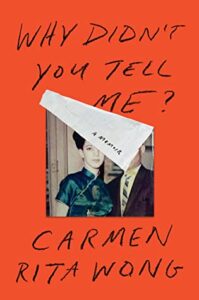
Carmen Rita Wong, Why Didn’t You Tell Me?
Crown, July 12
Perhaps you know Carmen Rita Wong from her stint as an advice columnist or a television host. She has been a chair on the board of Planned Parenthood and currently sits as a chair for The Moth. I think it’s safe to say that she’s built an incredibly successful career for herself—plus, she specializes in personal finance—which means she’s probably the kind of person who people love to ask: What’s your secret? Well, her memoir does hinge on a secret: one her mother kept from her for most of her life. No, I’m not going to tell you what it is! Yes, you should absolutely read it to find out for yourself.
For 216 pages, you will be invited into Carmen Rita Wong’s vivid childhood memories; you will intimately come to know some of the members of her family. In this memoir, our country’s race relations and obsession with identity play out in the unraveling of one family’s story. Why Didn’t You Tell Me? is a propulsive pursuit of the truth and the way it’s shaped this writer’s life. –KY
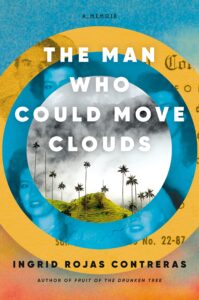
Ingrid Rojas Contreras, The Man Who Could Move Clouds
Doubleday, July 12
This one sounds absolutely fascinating. Colombian novelist Ingrid Rojas Contreras, author of 2019’s Fruit of the Drunken Tree, has written a family memoir unlike any other. Rojas Contreras was raised amid the political violence of 1980s and 90s Bogotá, but it was while living in the US in 2012 that she suffered a serious head injury, one which caused an eight-week bout of amnesia. Decades previous, her mother, after a similar injury, gained the ability to see ghosts and hear voices—a gift she inherited from her legendary healer father, Nono. The Man Who Could Move Clouds is the story of the return trip Rojas Contreras and her mother made to Colombia to disinter Nono’s remains and tell his incredible story, as well as the stories of her ancestors and her country. –DS
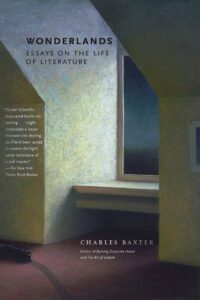
Charles Baxter, Wonderlands: Essays on the Life of Literature
Graywolf, July 12
I love Charles Baxter’s empathic, stealthily funny fiction deeply (one of the readings at my wedding was from The Feast of Love), so I have no doubt that his collection of craft essays will be both illuminating and beautiful. The essays in the book range from explorations of the titular literary wonderlands to examinations of the “request moment” (or: “There’s something I want you to do”) in stories. A revelatory craft book is a rare and wonderful gift for a writer-slash-reader, and I look forward to devouring this one. –JG
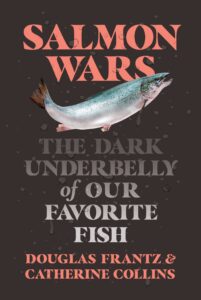
Catherine Collins & Douglas Frantz, Salmon Wars: The Dark Underbelly of Our Favorite Fish
Henry Holt & Company, July 12
I enjoy a nice salmon fillet from time to time and have, in my ignorance, always associated the fish with good health and environmental sustainability, so I’m a little terrified to read this damning expose of the international salmon farming industry. Pulitzer Prize-winning journalist Frantz and former private investigator Collins team up to expose the destructive impact of Big Salmon (which the authors compare to Big Tobacco and Big Agribusiness in its insidiousness) on both the natural world and on public health. Collins and Frantz take us from the massive parasite- and chemical-plagued ocean feedlots to the grotesque industrial hatcheries that threaten fragile coastal ecosystems, interviewing a slew of colorful and shady characters along the way. –DS

Elvia Wilk, Death by Landscape
Soft Skull, July 19
Elvia Wilk is a wonderful (and strange) mind to spend time with, and Death by Landscape, an essay collection billed as “fan nonfiction,” gives readers ample room to do just that. As Snigdha Koirala wrote for Lit Hub earlier this year:
Erotics of compost, vampires, medieval nuns, and solarpunk. Wilk’s “fan nonfiction,” examines the works of Anne Carson, Octavia Butler, Michelle Tea, and more to probe the lines and shapes of “weird fiction” in the face of extinction and all its urgency and anxieties. At the heart of it are questions of how to tell stories that center the Earth as opposed to humans, that help us grapple with the end of the world, and that help us see and be with the dark of it all.
This is what a beach read really looks like. –Jonny Diamond, Lit Hub editor-in-chief
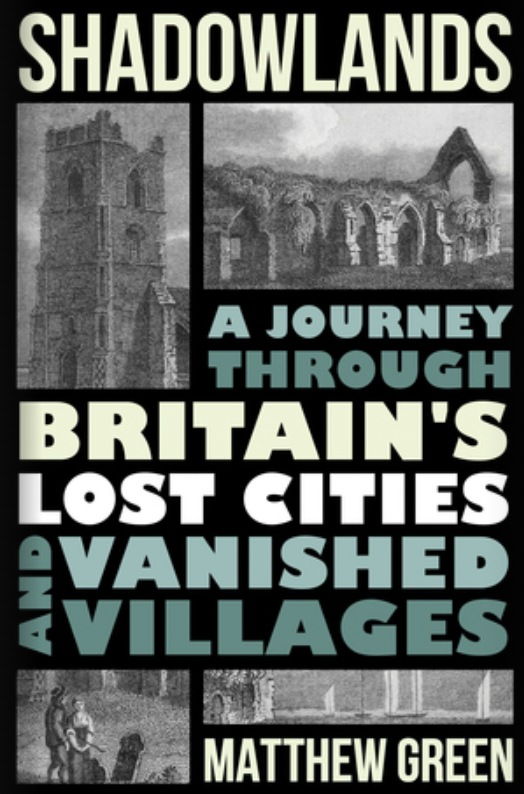
Matthew Green, Shadowlands
W.W. Norton, July 19
If you told me that British historian Matthew Green was some kind of delightful English Calvino who’d conjured up an odd fictional encyclopedia of disappeared cities, lost towns, and ghostly villages, I’d still want to read this book. But no, these stories of ancient English towns falling off sea cliffs, ghostly hamlets done in by pestilence, and eerie villages buried by time and earth, are all true. As so much of our collective imagination fixates on the fragility of our near-future existence, it is worth spending a little time with history’s stark examples of time’s dominion over us all. –JD
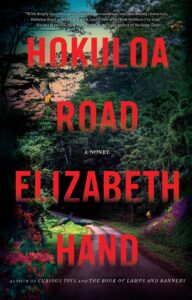
Elizabeth Hand, Hokuloa Road
Mulholland, July 19
If Lost had been written by Jane and Paul Bowles, with some input from Stephen King, then it might read something like Hokolua Road. I guess I just could have called it a tropical version of The Shining, given the set-up: an out-of-work builder from Maine accepts a job as a live-in caretaker for a remote Hawaiian estate owned by reclusive and eccentric tech billionaire. He’s out of his element, far from help, and mysterious things just keep happening… But is it all in his admittedly messed-up head, or is the land itself rejecting him? –MO
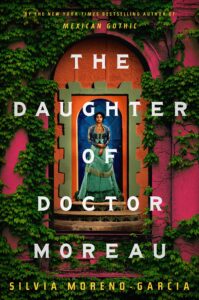
Silvia Moreno-Garcia, The Daughter of Doctor Moreau
Del Rey, July 19
If there are two things I love in this world, it’s contemporary reimaginings of Victorian era horror and sci-fi, and joyful genre mashups in literature. Thank the Lord, then, for Silvia Moreno-Garcia, the author of the 1970s Mexico City noir Velvet Was the Night and the postcolonial gothic romance Mexican Gothic, who brings her chameleonic powers to bear on H.G. Wells’ 1896 “exercise in youthful blasphemy.”
A thrilling fable of imperialism and exploitation, The Daughter of Doctor Moreau is the story of Carlota Moreau, a young 19th-century woman living on a ranch in northern Yucatán with her beloved mad scientist father and his “hybrids”—part human, part animal, bred to eventually work the haciendas of Dr. Moreau’s wealthy, and increasingly impatient, patron, Hernando Lizalde. Father, daughter, alcoholic caretaker Montgomery, and hybrids live together in (relative) harmony until the arrival of the patron’s spoiled son, Eduardo, who falls in love with Carlota.
As she explores her attraction to Eduardo and strains against the gilded cage her father has built for her, Carlota also begins to question the morality of the not-so-good doctor’s experiments. This sublime hybrid of historical, speculative, and gothic fiction might be Moreno-Garcia’s best yet. –DS

Liska Jacobs, The Pink Hotel
MCD, July 19
This is the perfect book to recommend to all your friends in hospitality!!! And also just the perfect book. I tore through this one like a California wildfire—an appropriate comparison, given the novel’s setting in a high-end hotel beset by fires all around. As the hotel descends into a Roman-style bacchanalia, protestors fill the streets, smoke fills the skies, and those who live and work in the hotel must make their choice between grotesque hedonism and leaving in disgust. –MO
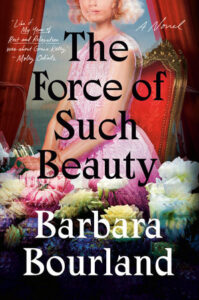
Barbara Bourland, The Force of Such Beauty
Dutton, July 19
I’d describe this one as My Year of Rest and Relaxation if it was written from the perspective of Grace Kelly or Lady Di. A former Olympic athlete, body broken from overtraining, meets the handsome heir to a small kingdom and becomes his blushing bride. Soon, her nuptial bliss turns to waking nightmare, as her husband and her mother-in-law conspire to control every dollar in the kingdom and every moment of the new princess’s life. –MO
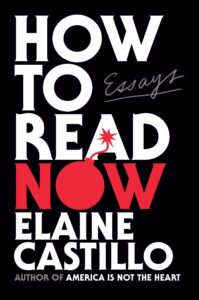
Elaine Castillo, How to Read Now: Essays
Viking, July 26
Every few months, the literary world seems to implode over the question of whether reading makes us better people. Does it? Should it? Is that the function of art? Elaine Castillo, author of the bestselling debut novel America Is Not the Heart, has a few thoughts, on that question and a dozen others. If I must boil down her argument to the space of a blurb, it’s that “white supremacy makes for terrible readers”—a lesson that’s playing out on the national news every day, and which makes me hopeful that this will be a Very Talked About Book. Observing the classics to the contemporary (including other “readable” media beyond books), and thinking deeply about the roles of reading in our world, Castillo urges us toward “a more daring solidarity.” –ES
Katie Hafner, The Boys
Spiegel & Grau, July 26
This is a pandemic novel about love, isolation, and family—then it takes what we in the business like to call “a turn,” after which it is still a pandemic novel about love, isolation, and family, except it is a much, much weirder one. I will say no more, for now. –ET
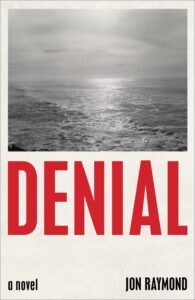
Jon Raymond, Denial
Simon and Schuster, July 26
Imagine a world where a global protest movement brought all the oil executives and lobbyists to a Nuremberg-like trail, convicting them and ridding the world of our fossil fuel dependency. Though the results of devastating climate change still exist (cyclones, megafires, Venice under water) the criminals are behind bars. Or, in Jon Raymond’s cinematic-thriller, most of them are.
One of them, Robert Cave, is hiding out in Mexico, and journalist Jack Henry is going to find him. But an unexpected friendship makes Jack question individual morality and punishment, and the nature of justice itself. There are a wealth of recent novels imagining the climate disaster that will befall us and the destruction of social contracts. But Raymond’s version of climate change—the victory of the guilty facing repercussions and the possible healing of the planet—reinforces the fact that the most important crisis facing humanity is human nature itself. –EF

Dwyer Murphy, An Honest Living
Viking, July 26
I don’t like reading books on the computer, or any sort of screen really, but I made my first exception so that I might read An Honest Living as soon as possible. Not only is it written by the great Dwyer Murphy, in whose esteemed company I have been gratified to work for several years (there’s your disclaimer), but it is also about all my favorite things: rare booksellers, old books, private investigators, post-millennium Brooklyn, the cafe in Sotheby’s auction house (which used to be on the top floor but now is in the basement), the New York Antiquarian book fair, brazen impostors, Roberto Bolaño… the list goes on. Anyway, I had a feeling I would enjoy it.
But, even after delightedly reading Dwyer’s slick, mile-a-minute prose on our site for three years, I wasn’t prepared for just how fun his debut novel would be. This is a novel—a smooth, timeless, thoughtful, wistful novel—that has to be read to be believed. It is a controlled, collected mystery, with narration that falls in step with the classic noir PI voice without turning it into a joke or sounding cliche. The best part about it is that it is a love letter to New York City—to the small New York, the nooks and crannies of it, the secret, out-of-the way landmarks and the vibrant hole-in-the-wall spots hiding in plain sight. And it is about the characters who live there—we meet so many charming, whimsical-yet-real-seeming characters that I felt at times like I was rereading The Pickwick Papers. It is a novel about exploring New York while investigating within it, getting to know it—but also holding on to it.
Our protagonist notes that countless small shops have come and gone but lovingly lingers in those that have remained somehow, and tries (as Dwyer does with the whole endeavor) to keep them alive. The central mystery is great, but its overall sensibilities are so tremendous that I would have enjoyed it just as much if it were a meandering travelog where nothing even remotely mysterious happened. –OR
AUGUST
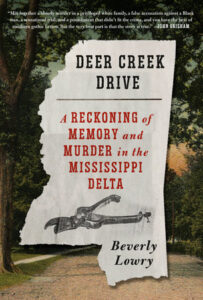
Beverly Lowry, Deer Creek Drive: A Reckoning of Memory and Murder in the Mississippi Delta
Knopf, August 2
The true crime boom of the past few years (particularly in podcasts, and their resulting TV adaptations) has left me conflicted, because while I find much of its product to be salacious and fear-mongering, I find a well-constructed nonfiction crime narrative to be among the most compelling type of book. In Deer Creek Drive, Beverly Lowry tells the story of the murder of Idella Thompson, a society matron in the Mississippi Delta where Lowry grew up. After claiming that an unknown Black man had committed the murder, Thompson’s daughter was convicted, but was released from prison after six years, following a widespread community campaign. In the book, Lowry explores the crime and its wide-ranging ripple effects in the community and her own life. This promises to be a thoughtful and gripping addition to the true crime genre. –JG
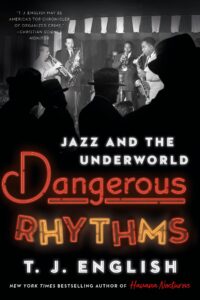
T.J. English, Dangerous Rhythms: Jazz and the Underworld
William Morrow, August 2
As T. J. English proves in this fascinating new work of nonfiction, the history of jazz has always been inseparable from the history of vice and crime. That’s partly because of where jazz originated—New Orleans has always had plenty of bordellos, in the salons of which a new kind of music emerged in the 1880s. The gangsters liked the music, and they started patronizing clubs where “jass” music would play. The musicians liked the gangsters and the madams because both were far less racist and moralizing than the cops and cultural authorities of the time (and, well, today). And so, a truly American musical form was born and nurtured by those deemed as decadent as the music they enjoyed. –MO
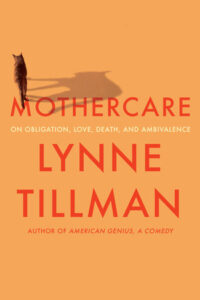
Lynne Tillman, Mothercare: On Obligation, Love, Death, and Ambivalence
Soft Skull, August 2
When was the last time a subtitle alone sold me on a book? This might be the first. Cultural critic Lynne Tillman’s latest delves into the 11 years that she and her sisters spent caring for their mother at the end of her life, as she experienced an unusual medical condition that causes memory loss. Both a treatise on the “grueling obligation” of caregiving and an ineffectual American healthcare system, as well as the frank recounting of loving and living with a difficult parent, Mothercare feels particularly apt for an era in which caregivers are more burnt than out than ever (or, perhaps more accurately, an era in which we’re finally paying attention). –ES
Alec Nevala-Lee, Inventor of the Future: The Visionary Life of Buckminster Fuller
Dey Street Books, August 2
This new biography of the multi-hyphenate American icon and futurist promises to dig deep into both his professional and personal life and frames him as the father of startup culture, showing how his ideas infected Silicon Valley and still hold sway today—whether you live in a geodesic dome or not. –ET
Emmanuel Carrère, tr. John Lambert, Yoga: A Novel
Farrar, Straus and Giroux, August 2
What will Emmanuel Carrère do next? This is the self-described story of a “breakdown,” beginning with a Buddhist meditation retreat that is cut short, followed by a series of events including breakdown of a marriage, depression, treatment in a psychiatric facility, and eventually a process of settling in Greece. This seems like a gripping story, and I can’t wait to read it. –CS
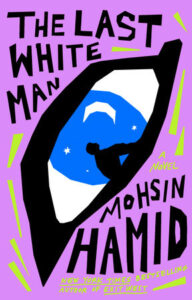
Mohsin Hamid, The Last White Man
Riverhead, August 2
Mohsin Hamid’s Exit West, published in 2017, was a gorgeously written story of two lovers struggling to maintain their lives across war and the brutality of contested borders. I couldn’t be more excited to read his upcoming book, which, like Exit West, shows two lovers grappling with the consequences of power and injustice: they face a world in which some people’s complexions have suddenly begun to darken and all the consequences that follow. –CS
Anthony Marra, Mercury Pictures Presents
Hogarth Press, August 2
Billed as “epic tale of a brilliant woman who must reinvent herself to survive, moving from Mussolini’s Italy to 1940s Los Angeles,” the second novel by Anthony Marra (A Constellation of Vital Phenomena) follows Maria Lagana, a Roman immigrant working for the troubled titular production company on the eve of America’s entry into WWII. Peopled by a cast of eccentric performers and European creatives-in-exile, Mercury Pictures Presents sounds like a thrilling and big-hearted love letter to mid-century Hollywood. –DS
Banana Yoshimoto, tr. Asa Yoneda, Dead-End Memories: Stories
Counterpoint, August 2
From the author of Lizard comes a new short story collection; originally published in Japan nearly a decade ago, these stories are evergreen. Dead-End Memories (a haunting title) follows several women, each one coming back to her life after a traumatic event. Although you will find heartbreak, ghosts, and betrayal humming in the background of these tales, you will also encounter a great deal of heart and optimism. Don’t we all need that right now? It’s the kind of collection that leaves you a little lighter. –KY
Kirk Wallace Johnson, The Fishermen and the Dragon: A Fight for Justice on the Texas Gulf Coast
Viking, August 2
Though The Fishermen and the Dragon is ostensibly an investigative accounting of past events (the Texas Gulf Coast in the late 1970s) it reveals much to us about our future. What happens when multinational corporations destroy traditional, local ways of life through greed, incompetence, and malfeasance? And then what happens when displaced communities, with no agenda other than to feed their families, are added to the mix? Kirk Wallace Johnson tries to answer these questions—and more—in this deeply reported story of struggling Texas Gulf Coast fishermen, Vietnamese refugees, rampant and widespread pollution, blatant xenophobia, and the deeply racist violence that inevitably ensues. There is a lesson here, and we’d better learn it fast. –JD
Robert Lowell; edited and with a preface by Steven Gould Axelrod and Grzegorz Kosc, Memoirs
FSG, August 2
The poet Robert Lowell (1917-1977) was a renowned writer and recipient of the National Book Award as well as the Pulitzer Prize for poetry twice over. But while he was a prolific and celebrated poet, Lowell dealt with his fair share of struggles. He suffered from severe bipolar disorder for most of his life, something that he discussed and alluded to in Life Studies, but his memoirs offer an open and honest account of what it was to grow up with his brain and his illness. Memoirs is predominantly made up of unpublished childhood memories that demonstrate who Robert Lowell will become, as well as who he was: a child in pain, trying to find a way forward, a way to heal. Writing may not have cured all, but it did allow us to experience the great work of someone who had been to the darkest places and back and lived to tell us of it. –JH
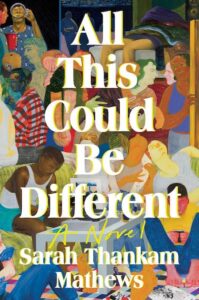
Sarah Thankam Mathews, All This Could Be Different
Viking, August 2
In Sarah Thankam Mathews’ debut novel, we are introduced to Sneha, a college graduate on the brink of a new life in Milwaukee. She’s got a corporate job that pays enough so she can send money home to India. She’s got a crew of new friends. She starts dating women and falls for one in particular, the ever-elusive Marina. But life has a way of unraveling just when things start to feel settled… All This Could Be Different promises to be a bildungsroman, an immigrant story, a hero’s journey not to be missed. –KY
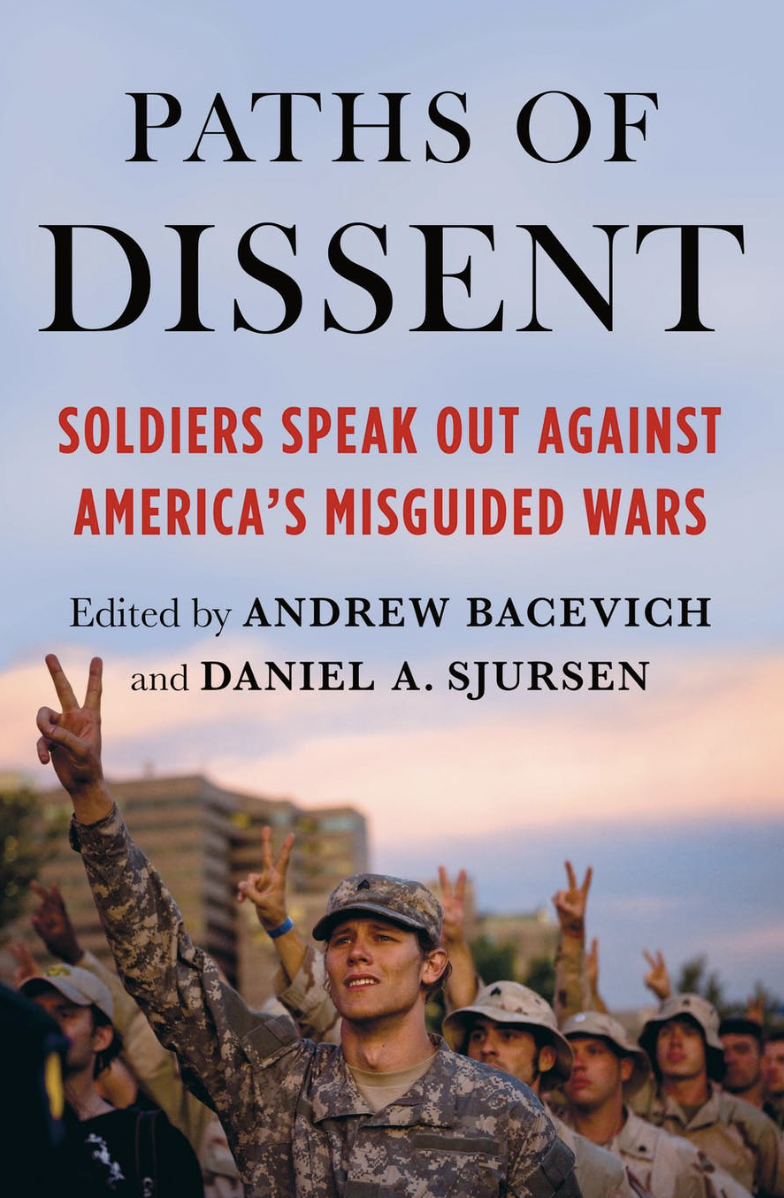
Andrew Bacevich and Danny A. Sjursen (eds.), Paths of Dissent: Soldiers Speak Out Against America’s Long War
Metropolitan, August 2
We have not yet reached the one-year anniversary of American withdrawal from Afghanistan and already the disastrous fallout—at home and abroad—of this multigenerational forever war recedes from public consciousness. This cannot be allowed to happen. We *should* know by now that the half-life of a war and its effects goes on much longer than its official end date… and maybe we would if we spent more time listening to the soldiers themselves rather than the politicians who sent them away to die.
Paths of Dissent: Soldiers Speak Out Against America’s Long War, edited by Andrew Bacevich and retired army officer Danny A. Sjursen, shares the voices of post-9/11 veterans as they wrestle with the unimaginable moral and material debt accrued through over 20 years of largely misguided war. It takes courage in this country to speak out as a soldier, and if we are to avoid the kind of imperial folly that gave us the War on Terror, we will need to make more space for the voices of veterans who know of what they speak. This book does that. –JD
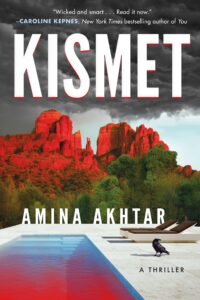
Amina Akhtar, Kismet
Thomas & Mercer, August 2
I’m a huge fan of Amina Akhtar’s cult classic debut, #FashionVictim, based on Akhtar’s experience working in the fashion magazine world. Her second novel skewers the wellness industry of Sedona (Amina Akhtar is now based in Arizona) and also includes a light supernatural touch that’s perfectly integrated into the thriller arc as a whole. In Kismet, a young desi woman follows her #livelaughlove mentor from New York to Sedona, befriends a bunch of ravens, and also solves some murders. Someone is killing extremely annoying people in this book, and readers may find themselves actively encouraging the killer. –MO
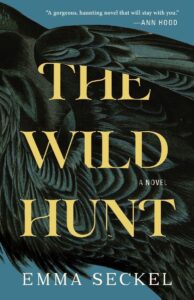
Emma Seckel, The Wild Hunt
Tin House, August 2
I never knew crows could be so creepy, but Emma Seckel schooled me in her richly imagined debut novel. Every year on the first of October, the crows arrive in threes—so many of them that the islanders off the coast of Scotland board up their homes for 30 days, instruct their children not to run under any circumstances (it attracts the birds), and celebrate the crows’ clockwork departure on the first of November.
But according to Celtic legend, these aren’t just any crows—they’re slaugh, ancient creatures known to ferry the souls of the dead. And in the solemn days after World War II, the slaugh are more numerous and aggressive than ever. When a young islander goes missing, Leigh Welles—harboring no small amount of guilt over feeling useless during the war, and no small amount of grief after her father’s recent death—teams up with the widowed RAF pilot Iain MacTavish—also guilt-ridden and reeling from the war—to investigate. A moving historical novel haunted by folklore and reality alike, best enjoyed during the slow slide from summer into fall. –ES

Alejandro Zambra, tr. Megan McDowell, Bonsai
Penguin Books, August 2
Bonsai has been praised the world over by now. The debut novel of the brilliant Alejandro Zambra, it was originally published in 2006 and drew well-deserved attention; now reissued by Penguin Books in a new translation by Megan McDowell, this is the perfect time to discover (or re-discover) it. Not a single word is wasted in this powerful, elegantly told story, which traces through a few episodes in the lives of Julio and Emilia, two young people who fall for one another at university—bonding over their love of literature and discussion—then retreat from one another’s lives.
This is the story of a love affair, but more to the point, it’s the story of all the moments that happen around, and after, an affair’s conclusion: the wondering, the distance, the passage of time that feels normal and not-normal all at once. A brief, striking story about all the imperceptible ways that lovers change one another (and the ways that they don’t), this book is unforgettable. –Corinne Segal, senior editor
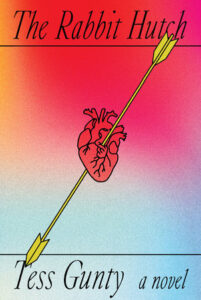
Tess Gunty, The Rabbit Hutch
Knopf, August 2
In Vacca Vale, Indiana—a poisoned corner of the Midwest, where the chemical remnants of an abandoned auto industry have leached into the water of a town and the bodies of its residents—the inhabitants of an apartment complex nicknamed the Rabbit Hutch try to get by. At the story’s center is Blandine, an unusually intelligent young woman who’s fascinated by the writings of mystics, but who dropped out of high school; she lives with three boys who, along with Blandine, have aged out of the foster care system. (As you might expect, the boys are all obsessed with her.)
The four of them are surrounded by a varied cast of characters, from a new mother to a content moderator at a memorial website for the deceased and others; their private heartaches, longings, and fumblings toward connection drive the story forward. Gunty writes with such compassion for her characters as they build their lives and assert their agency in a country that utterly disregards them, and in particular Blandine’s bright, fierce curiosity for the world kept me moving through the story; she’s a warrior, an intellectual force, a young woman who refuses to be disempowered. This is a skillfully told, beautiful, human story. –CS
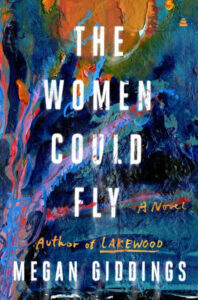
Megan Giddings, The Women Could Fly
Amistad, August 9
Lakewood author Megan Giddings offers a dystopian sophomore novel about 28-year-old Josephine Thomas, a Black woman who has never made sense of her mother’s disappearance. There’s the terrifying thought that Josephine doesn’t want to consider: was her mother a witch? Now, 14 years after her mother seemingly vanished into thin air, Josephine is fast approaching the state-mandated cut-off for marriage at age 30. Will Josephine learn the truth about her mother—and herself? I’m always down for stories about witches, especially if they’re about witches of color. In Giddings’s capable hands, I’m sure the narrative will be equal parts magic and revelatory. –Vanessa Willoughby, assistant editor
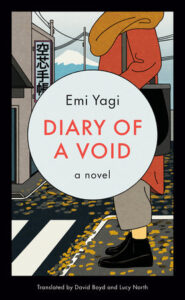
Emi Yagi, Diary of a Void
Viking, August 9
As Walker Caplan wrote in our Most Anticipated Books of 2022 roundup, Emi Yagi’s Diary of a Void has “one of the most fun premises I’ve heard of all year”—and fortunately, the premise pays off. Tired of making coffee and cleaning up after her male coworkers, single, 34-year-old Ms. Shibata makes a spontaneous announcement that she’s pregnant (whomst among us). Suddenly, her team stops expecting the most menial tasks to fall to her, she gets to leave work early (which is to say, at the decent hour of 5 pm), and she even makes a new circle of friends at a pregnancy aerobics class.
The latter is where this story really shone for me—Yagi captures Shibata’s loneliness and the community she’s granted upon “falling into step” with her married peers in such a keen way that, reading along, you’re on pins and needles to discover what will happen as this fake pregnancy runs its course. (You won’t get any spoilers out of me!) –ES
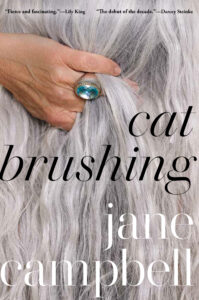
Jane Campbell, Cat Brushing
Grove, August 9
Eighty-year-old Jane Campbell’s elegant and necessary debut collection centers the experiences of older women who have long been deemed invisible in society. These 13 stories give us 13 different voices, the likes of which we’ve never heard: they are all women, past middle age, with a keen sense of their own mortality, but still with a hunger for experience and understanding. A dying woman experiences lust for the first time for the young nurse taking care of her in an elderly facility. A woman brushes her cat and remembers the pleasures of youth and sex, mourns what has past. Mysterious cuts and scratches found on a woman’s body foretell the end, though she doesn’t remember how she got them. A woman who believes her life is over meets a man on a train and finds love, but finds cruelty too. With serenity and the weight of years lived, Campbell sketches a quietly transgressive collection of characters both familiar and entirely new, sharp with grief and wit, and resolutely ready to tell their stories. –JH
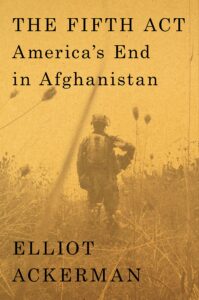
Elliot Ackerman, The Fifth Act: America’s End in Afghanistan
Penguin Press, August 9
The history of the American invasion and occupation of Afghanistan is only beginning to be written, and it will likely be decades before a fuller picture emerges. But an early and important voice in that story will be that of writer and veteran Elliott Ackerman, who served in both Iraq and Afghanistan. The history of any war will always be an ongoing collation of subjectivities—as such Ackerman brings his own deeply personal perspective as a marine (and later as a CIA paramilitary officer) who returns to Afghanistan on the eve of its return to the Taliban to help in impromptu, large-scale evacuations. Ackerman then works backward to look at 20 years of American misadventure in the Middle East, and the deep impact it has on two decades of his life. –JD
Jesse Ball, Autoportrait
Catapult, August 9
Jesse Ball’s memoir, inspired by the memoir Édouard Levé wrote shortly before his death, has been called “frank” and intimate” but I imagine its greatest strength is the clear and somewhat unsettling way in which Ball—as he does in his many novels—is able to pinpoint the best and worst of everyday life, of the basic situation of simply being alive, and make it strange and slightly absurd. “Autoportrait will leave you feeling utterly invigorated, inspired, and a little afraid.” Sounds about right! –EF
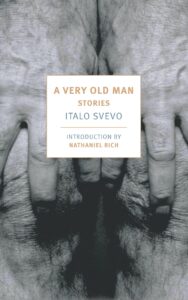
Italo Svevo, A Very Old Man: Stories
New York Review of Books, August 9
Italo Svevo achieved international acclaim as the author of Zeno’s Conscience, a modernist novel following the story of Zeno Cosini as he narrates his thoughts about family life, romantic misadventures, and the neuroses that make up his daily life. Now, NYRB Classics is issuing a set of five stories that Svevo wrote later in life; originally intended to be parts of a novel, they are available here to read in translation by Frederika Randall, with an introduction by Nathaniel Rich. It’s always fascinating to see a great writer’s work in progress; this is no exception, and is a great reason to revisit Svevo’s work in general. –CS
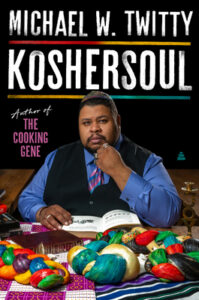
Michael W. Twitty, Koshersoul: The Faith and Food Journey of an African American Jew
Amistad Press, August 9
Michael W. Twitty’s Koshersoul is an exploration of Black Jewish identity, lived and expressed through food. Twitty dives right into some of the more difficult conversations around Judaism and race, drawing on his own experience along with conversations with spiritual leaders and activists—always with a focus on the joy, ingenuity, and diversity of Black Jewish life.
In this interplay of history, Jewish teachings, and memoir, Twitty shows us the ways that he and others engage in a dialogue with their ancestors through food; a kitchen can be a sacred space, and nourishment in its many forms carries spiritual significance. There are recipes, too: “a koshersoul community cookbook of sorts,” filled with the knowledge of those whom Twitty interviewed. –CS
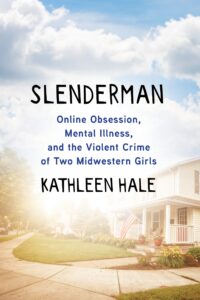
Kathleen Hale, Slenderman: Online Obsession, Mental Illness, and the Violent Crime of Two Midwestern Girls
Grove, August 16
Kathleen Hale’s Hazlitt piece on the Slenderman story still stands out from the general sensationalist coverage of the case for its level of empathy for all involved. When two middle schoolers stabbed another middle schooler in the woods in 2012, they claimed to do it on behalf of a mysterious figure known as Slenderman. Hysterical parenting sites spread a moral panic about CreepyPasta, the website where stories of Slenderman originated and then became memes. However, undiagnosed schizophrenia, midwestern stoicism, and intense friendship dynamics are much more to blame for the attack, as Kathleen Hale illustrates here. –MO
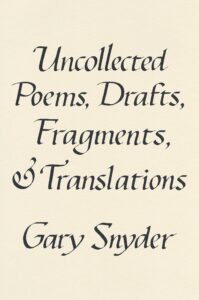
Gary Snyder, Uncollected Poems, Drafts, Fragments, and Translations
Counterpoint, August 16
Counterpoint Press continues to dole out the Gary Snyder goods: after such a long and storied career, with twenty-plus books under his belt, it’s impressive there is still new Snyder work to be read. Many of the works gathered here have been published in magazines or as singular broadsides, but just as many have been culled from Snyder’s letters and journals, and have never been published nor read by the public. –JH
Daisy Lafarge, Paul
Riverhead, August 16
In Lafarge’s debut, inspired by the exploits of artist Paul Gaugin, a young British graduate student goes to the south of France to work on a farm, and finds herself captivated by an older man, the eponymous Paul. Aja Gabel calls it an “essential portrait of the toxic power dynamics in romantic relationships, and a beautiful, immersive story about a young woman finding her voice,” which sounds like pretty decent summer reading to me. –ET
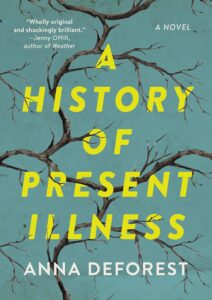
Anna Deforest, A History of Present Illness
Little, Brown, August 16
Anna Deforest’s brisk and brilliant debut follows a young woman beginning on her first day as a student doctor. Deforest (a physician herself) brings wit and beauty to scenes of cadaver dissection, brain death, abortion, and other matters routine to doctors and often shrouded in mystery to civilians. While comparisons to other beloved fragmentary writers will be inevitable, this book is unique, and spectacular. –JG

Édouard Louis, tr. Tash Aw, A Woman’s Battles and Transformations: A Novel
FSG, August 16
Edouard Louis’ latest book is an autobiographical novel, much in the vein of his earlier novels (his debut The End of Eddy chronicled growing up gay in working-class northern France and the more recent Who Killed My Father?, detailed his father’s accident and the ensuing emotional and physical violence he endured growing up). Now Louis turns the lens on his mother, Monique Bellegueule. Although he uses her real name, the narrative is non-linear, interjected with philosophy and family history, and maintains some of the mystery that keeps French journalists busy trying to fact check Louis’ art. While the narrative is pulled from his life, the personal is always political—and Louis tracks his mother’s violence and pain as intertwined with capitalism, patriarchy, and systems beyond our control. Translated by his friend and novelist Tash Aw, this is not to be missed. –EF
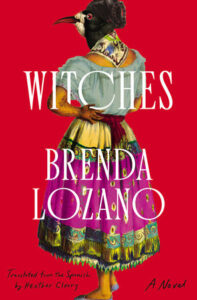
Brenda Lozano, Witches
Catapult, August 16
Two narratives come together in Brenda Lozano’s newly translated Witches: that of Feliciana, and Zoe, a journalist, who meet when Feliciana’s cousin, Paloma, is murdered. Feliciana tells the story of her experience as an Indigenous healer in Mexico, and her life with her trans cousin Paloma before her death. Eventually, these stories change the way Zoe sees not only the world but herself, and allow her to find her own path and voice. –JH
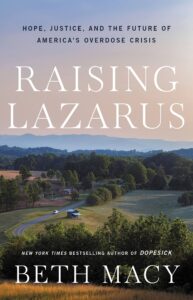
Beth Macy, Raising Lazarus: Hope, Justice, and the Future of America’s Overdose Crisis
Little, Brown, August 16
Macy’s follow-up to her bestselling Dopesick brings her essential reporting on the American opioid epidemic up to the present day, examining not only the political, financial, racial, and social elements at play, but also what happens when you throw a pandemic into the mix. –ET
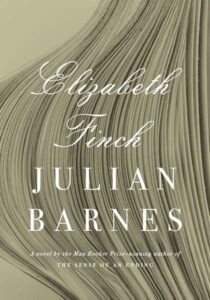
Julian Barnes, Elizabeth Finch
Knopf, August 16
Barnes’ reputation precedes him as an immersive and gentle storyteller, someone transfixed with humanness, the mystery at the center of personhood, and most importantly, the fallibility of memory and story. In typical Barnesian fashion, Elizabeth Finch’s narrator, Neil, can trace the origin of his person, the turning point of his life, back to one season of his young adulthood. In this case, it is a class he took with the larger-than-life Elizabeth Finch, or EF, as we come to know her. She is a stoic, awe-inspiring professor who leaves her imprint on the minds of all those that come into her sphere—with nods to The Prime of Miss Jean Brodie, Barnes new novel revolves around this woman, what we know of her, what we will never know.
Perhaps one of Barnes’ most personal novels, he pulls almost direct quotes from his 2016 obituary of his real-life friend and novelist, Anita Brookner as he describes EF, a stand-in for Brookner, whom Barnes admired, respected, and never really understood. Elizabeth Finch is an interrogation of what it means to make a study of someone else, love someone, to be changed by someone, and to realize we maybe never have known them at all. –JH
Nina Mingya Powles, Magnolia
Tin House, August 16
At the risk of being reductive, I love a collection that combines poetry and pop culture, which Nina Mingya Powles’s Magnolia does to excellent effect. We begin with “Girl Warrior, or: Watching Mulan (1998) in Chinese with English Subtitles”; several stanzas in, Powles reveals to us where she’s coming from: “once a guy told me mixed girls are the most beautiful / because they aren’t really white / but they aren’t really Asian either.” The collection goes on to explore mixed-race girlhood and the confines of language and translation, as well as longing—for others, for a sense of home—in poems that play with both form and subject. I read it in my backyard on a warm spring day, just as everything was beginning to bud, which felt like the just right setting. –ES
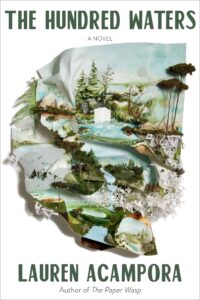
Lauren Acampora, The Hundred Waters
Grove, August 23
Lauren Acampora’s The Paper Wasp, was one of my favorites of 2019. It was one of the most surprising and suspenseful novels I can remember reading. It’s strange in a way that feels elemental and necessary, as well as sad and scary and thrilling. I’m delighted to report that her latest novel, The Hundred Waters, manages to be both wholly different from The Paper Wasp, and every bit as exciting.
The Hundred Waters follows Louisa, a former model and artist, now living in a wealthy, staid Connecticut town while raising her 12-year-old daughter Sylvie and running the town’s sleepy art center. She and her daughter both become enchanted by the teenage son of a new couple in town, an artist and climate activist who seems both alluring and sinister. Questions of the pursuit of art, stagnation, youth and aging, and how to exist on a planet that is, increasingly, made up solely of emergencies, are grounded in the richness (no pun intended) of Sylvie and Louisa’s characters. And, as in The Paper Wasp, Acampora’s descriptions of the strangeness of artworks are not to be missed. –JG
Gaia Vince, Nomad Century: How Climate Migration Will Reshape Our World
Flatiron, August 23
“We are facing a species emergency,” writes Vince, whose new book draws on two years of frontline research and a career in environmental journalism. “We can survive, but to do so will require a planned and deliberate migration of a kind humanity has never before undertaken. This is the biggest human crisis you’ve never heard of.” More good news, then. But better to be prepared, especially considering it’s already happening. –ET
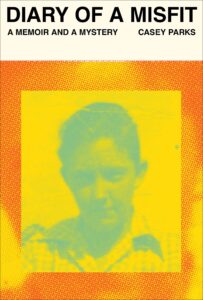 Casey Parks, Diary of a Misfit
Casey Parks, Diary of a Misfit
Knopf, August 23
Casey Parks knew it would be a cataclysmic event when she told her Southern family about her queerness, but she didn’t know it jumpstart her own quest for answers. After telling her family she was a lesbian, her grandmother told her about “a woman who lived as a man,” Roy Hudgins, who used to live across from her many years ago. Her grandmother instructed Parks to track him down and find out what she could—and this she did, spending years looking for Roy, finding out how he lived, what he thought, how he managed his otherness in a place that did not celebrate it. Parks ends up finding a lot more than she bargained for, more about Roy, queer lineage, and her own relationship to her identity, faith, and family. This one’s not to be missed. –JH
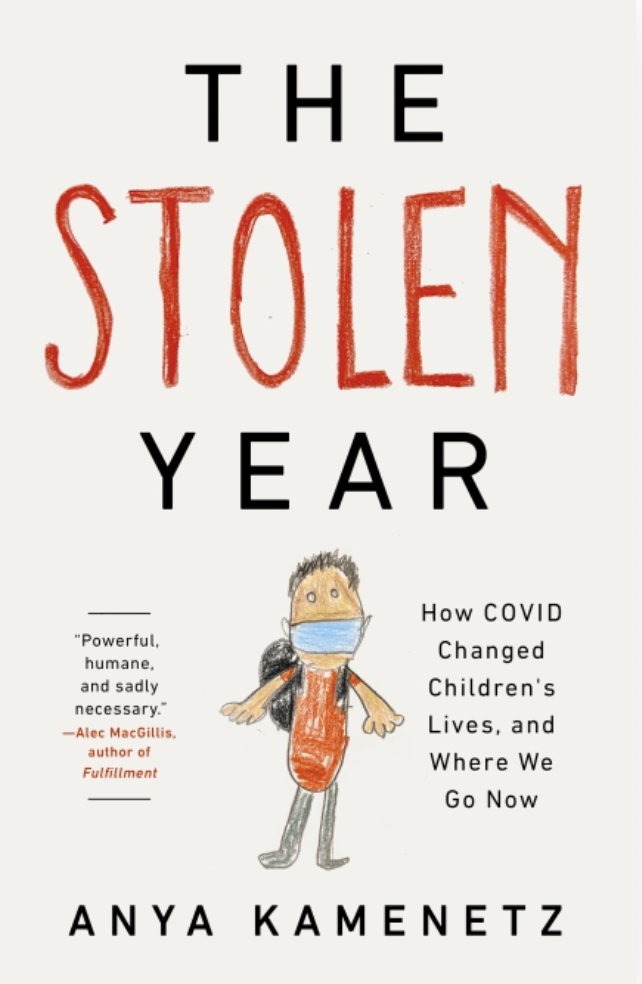
Anya Kamenetz, The Stolen Year
Basic Books, August 23
You might know Anya Kamenetz as a voice on your radio reporting on the many ways in which American social policy—at the local, state, and federal levels—is letting down the nation’s children. As NPR’s education correspondent, Kamenetz has had a first-hand look at the impact of this country’s systematically dismantled social safety nets, the result of a multi-generational campaign that has left those most vulnerable with nowhere to go. And those most vulnerable are children.
If there was any doubt about the inability of American government to take care of its own, it was put to rest by our disastrous response to the Covid-19 pandemic. As Kamenetz documents in The Stolen Year—in which she interviews families across America, from all walks of life—children are always the first to suffer when there isn’t enough of anything, be it food, money, time, care, or shelter. We still cannot know the cost of these terrible years on the younger generation, but with The Stolen Year, we can at least begin the reckoning. –JD

Robert Crawford, Eliot After the Waste Land
Farrar, Straus, and Giroux, August 23
The much anticipated follow up to Crawford’s Young Eliot, Eliot after ‘The Waste Land’ does what it says on the tin: tells the story of the poet’s life after the release of his grand opus. Eliot’s letters with long-time love, Emily Hale, were unlocked in the year 2020, and Crawford draws upon this unearthed trove of documents among others in his final biography. What emerges is the completed portrait of a man who has been in the public eye for over a hundred years, but has never before been seen in quite this way: the reader is treated to the intimate and tender correspondence between him and his great love, as well as a more comprehensive understanding of his work and career. –JH
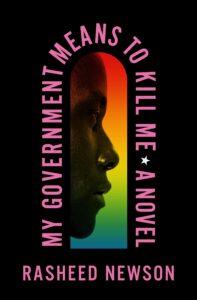
Rasheed Newson, My Government Means to Kill Me
Flatiron, August 23
You don’t want to miss My Government Means to Kill Me, the debut novel from Rasheed Newson, producer and writer of such acclaimed series as Bel-Air, The Chi, and Narcos. His novel is a powerful story about Trey, a young, gay, Black man in 1980s New York City as he comes of age personally and politically. Newson’s writing is crisp and clear, witty and engrossing—the kind of prose that pulls you in so quickly you’ll miss your subway stop (and I did). Do you like footnotes? If so, then this is the book for you: extremely thoughtful and clever on narrative, thematic, and formal levels, unfolding meaning in every possible place, My Government Means to Kill Me is a tour-de-force. –OR
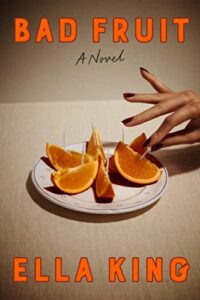
Ella King, Bad Fruit
Astra House, August 23
Bad Fruit occupies that liminal space between psychological thriller and horror, beautifully written and incredibly disturbing. In this lushly poisonous tale, we follow a teenage girl on the cusp of freedom from her tyrannical mother. Things take a turn towards the supernatural when she gains access to intergenerational memories and begins to finally understand her family’s strange behavior. Perfect for those who enjoyed Natsuo Kirino’s underrated mishmash of thriller and body horror, Grotesque. –MO
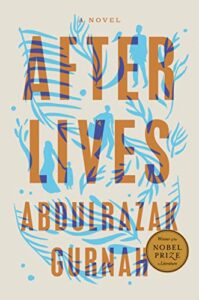
Abdulrazak Gurnah, Afterlives
Riverhead Books, August 23
When Abdulrazak Gurnah won the Nobel Prize in 2021 for his “uncompromising and compassionate penetration of the effects of colonialism and the fates of the refugee in the gulf between cultures and continents,” American readers rushed to purchase his books; they found very little to buy, as many were out of print, and publishers soon began racing to correct the problem. Now, Afterlives—which was published by Bloomsbury in the UK in 2020—is coming to the US via Riverhead.
Afterlives is a sweeping look at multiple generations of a family as they navigate the shifting political climate in east Africa (present-day Tanzania), beginning with the era of German colonization through World War II. We’re introduced to Ilyas, who was kidnapped as a young boy and forced to serve with German forces, and his sister, Afiya, who, after Ilyas was taken and their parents died, lived with another family who abused her and forced her to work. When Ilyas comes back, he takes his sister to live in a nearby town, where she settles with friends as he voluntarily returns to the German army. It is in that town that Afiya encounters Hamza, reeling from his time serving with the same forces—the two of them fall in love and build a life together.
This is a look at the impossible decisions and violences that a community faces as the savage force of colonization rips through its social fabric; Gurnah’s deep insight into history, and his attentive narrative eye, make this an engrossing, moving read. –CS

Emma Donoghue, Haven
Little Brown, August 23
Twenty-first century living got you down? Wish you could disappear, even for a few hours, into an older, simpler, purer way of life? Well, it doesn’t get much purer than an extraordinarily inhospitable island off the west coast of Ireland, inhabited only by a massive colony of puffins and three severely under-resourced seventh century monks. In this brilliantly realized, utterly transporting new novel by Irish-Canadian author Emma Donoghue (Room, The Wonder), a pious traveling scholar-priest called Artt has a dream telling him to seek out a far-flung island, cut off from the sin and sloth of the modern world, on which to build a monastery. Taking with them minimal supplies (“God will provide”) Artt and a pair of bewildered but loyal new disciples—the awkward-but-seaworthy teenager Trian and the battered, late-in-life convert Cormac—set out in a currach, with nothing but faith as their compass, to discover what we now know as Skellig Michael (where, if you recall, old, bearded Luke Skywalker lives in one of those interminable new Star Wars movies).
Donoghue’s detailing of the island’s rugged geography and the methodical subsistence work of its dogged new stewards is masterful, almost hypnotic, but it’s the author’s quietly devastating depiction of the conflict between faith and survival, obedience and self-preservation, that powers this extraordinary novel. –DS
Joyce Carol Oates, Babysitter
Knopf, August 23
The latest novel to spring from the macabre imagination of octogenarian Twitter dynamo Joyce Carol Oates (the iconic, multi award-winning author of them, Blonde, Blackwater, and The Wheel of Love, to name but a few) is set the dying days of the 1970s as a series of unsolved child murders—committed by a serial killer known as Babysitter, who stalks the wealthy Detroit suburbs—upends the lives of a disparate group of residents. A slow-burning, 70s-set, serial-killer-in-suburbia yarn by one of the masters of American horror sounds to me like the perfect book for the waning days of summer. –DS
Alissa Quart, Bootstrapped: Liberating Ourselves from the American Dream
Ecco, August 30
Alissa Quart has long been an outspoken advocate for those millions (upon millions) of people left out of late capitalism’s endless get-rich-quick pyramid scheme, as a writer, journalist, and even a poet. In her latest work of longform journalism, Quart interrogates the pervasive—and pernicious—American myth of “bootstrapping,” that magical idea that if you only work hard enough, if you just dig a bit deeper, you too can have it all (regardless of the material circumstances of your birth). As income inequality grows ever wider in a country that seems to survive solely through a ragged network of GoFundMes and pay-day loans, Bootstrapped is an important reminder that sometimes asking for help is the real act of heroism. –JD
SEPTEMBER
Jenny Xie, The Rupture Tense
Graywolf, September 6
Line after line, sentence after sentence, whenever I encounter the poetry of Jenny Xie I find myself stuck in small breathless moments of wonder at what the hell she just did. This line, for example, from her last collection, Eye Level: “I can shake out the imprint of my body on the sheets each morning. Harder to shake out the mind.” I have since sought out her work wherever I can find it, and am excited it will be collected in The Rupture Tense, forthcoming from one of America’s great publishers of poetry, Graywolf. –JD
Amit Chaudhuri, Sojourn
NYRB, September 6
This slim new novel from author and critic Chaudhuri is described as a “dramatic and disconcerting work of fiction, a book about the present as it slips into the past, a picture of a city and of a troubled mind, a historical novel about an ostensibly post-historical time, a story of haunting.” That is to say, the perfect kind of strange little book to lead us into fall. –ET
Douglas Rushkoff, Survival of the Richest: Escape Fantasies of the Tech Billionaires
W.W. Norton, September 6
If you, like me, have a morbid curiosity about the batshit mentalities of our new billionaire tech oligarchs, Survival of the Richest will be right up your alley. Theorist Douglas Rushkoff explores the inception and implications of The Mindset, a “Silicon Valley-style certainty” that—with enough money, and absolutely zero moral qualms—these depraved tech bros will be able to survive the impending societal collapse of their own making. Fun! –ES
Jonathan Escoffrey, If I Survive You
MCD, September 6
This debut from Stegner Fellow Jonathan Escoffery, who won the Paris Review Plimpton Prize for Fiction in 2020, is a collection of interconnected stories about a Jamaican American family in Miami that Marlon James describes as “kaleidoscopic, urgent, hilarious, revelatory and like nothing you’ve read before.” Sold. –ET
Alice Wong, Year of the Tiger: An Activist’s Life
Vintage, September 6
When the anthology Disability Visibility came out two years ago, it centered a severely underrepresented community. Those essays, collected and edited by Alice Wong, spoke to the nuances of living with a disability today. With Year of the Tiger, Alice Wong is giving us a glimpse at her own journey as an Asian American disability activist. It’s not so much a memoir or a collection of essays as it is a scrapbook, an inviting look at one of our most important community-builders. She manages to establish community even within this book; throughout, you’ll also find art by disabled and Asian American artists; Alice Wong’s commitment to her cause is felt on every page. –KY
Margaret Wilkerson Sexton, On the Rooftop
Ecco, September 6
Set against the backdrop of a gentrifying black neighborhood in 1950s San Francisco, Sexton’s latest is a big-hearted family story about an ambitious stage mother whose dreams for her three daughters’ musical careers come into conflict with the girls’ own changing desires. Sexton’s previous novel, 2019’s The Revisioners, was a New York Times Book Review Notable Book of the Year and received a NAACP Image Award for Outstanding Literary Work, so expectations are high for her follow-up. –DS
Kathryn Scanlan, Kick the Latch
New Directions, September 6
The latest book from the author of Aug 9–Fog and The Dominant Animal is as fascinating and formally inventive as we have come to expect—the story of one woman’s life, based on transcribed interviews with a former racehorse trainer, and told in brief vignettes of voice, in what Lydia Davis calls “a magical act of empathic ventriloquy.” –ET
Joe Meno, Book of Extraordinary Tragedies
Akashic, September 6
Joe Meno writes with a humor and tenderness that sometimes doesn’t feel made for this bleak hour of history… Or. Maybe it’s exactly what we need right now? Book of Extraordinary Tragedies tells the story of two southside Chicago siblings—erstwhile musical prodigies—forced back together in their early twenties by unforeseen circumstances, groping around for meaning as they struggle from one day to the next working whatever odd job is available to them. Meno reminds us that though family’s do, in fact, fuck you up, sometimes they’re the only thing that can put you back together. –JD
Jill Bialosky, The Deceptions
Counterpoint, September 6
Jill Bialosky’s latest has several key phrases calling out to me: the Greek and Roman gods, afternoons spent at the Metropolitan Museum of Art, a poet/teacher struggling with her work and marriage, and the vague hints of a “betrayal” committed by a male colleague, a fellow poet and presumably Bad Art Friend. Just the sweet sort of academic intrigue I always crave in the fall. –ES
Kim Hye-jin, tr. Jamie Chang, Concerning My Daughter
Restless Books, September 6
We love a good mother-daughter journey! In Kim Hye-jin’s debut novel, we meet a widowed mother who simply wants the best for her child—but only if that involves a respectable job and a good husband. When her daughter comes home with a serious girlfriend, tensions arise. It is a heartfelt story about family struggle, and the ways we might bridge the gaps between generations. This novel raises poignant questions about family, choice, and the possibilities that unfold when you take the reins of your life in your own hands. –KY
A.M. Homes, The Unfolding
Viking, September 6
A.M. Homes’ first novel since her Women’s Prize-winning May We Be Forgiven tackles a sore subject: the election. Not the 2016 election—the 2008 election, which upends the life of a character called the Big Guy, who “taps a group of like-minded men to reclaim their version of the American Dream.” (Don’t worry—he’s not a hero.) Nathan Hill describes the book as “a story about what happens when truths that once seemed self-evident turn out to be neither self-evident nor even true… hilarious and shocking and heartbreaking and just a little bit deranged—in other words, it’s a book that feels like what it feels like to be alive right now.” –ET
Javier Zamora, Solito: A Memoir
Hogarth, September 6
God help me, I love a poet memoir—especially one by a poet whose work I already know and adore. Zamora’s tells of his journey from El Salvador to the US when he was nine years old—accompanied by strangers, hoping to reunite with his parents. I expect great things. –ET
Clarice Lispector, tr. Margaret Jull Costa and Robin Patterson, Too Much of Life: The Complete Crônicas
New Directions, September 6
From 1967 to 1973, Clarice Lispector addressed her readers in short pieces called crônicas for the widely-read Jornal do Brasil, where she had the freedom to expound a variety of topics. The result was a series of fascinating essays, presented here in a collection from New Directions, which calls them “chatty, mystical, intimate, flirtatious, and revelatory.” In other words, all the things we love about Lispector, in a new form and given a new home. –CS
Karen Armstrong, Sacred Nature: Restoring our Ancient Bond with the Natural World
Knopf, September 6
Sure, civil rights in this country are rapidly declining and America-as-a-democratic-experiment seems on the verge of collapsing but… have I mentioned what’s going on with the climate? Ugh. It can be hard to find hope these days. But as historian of religion Karen Armstrong shows in Sacred Nature, humanity has always sought spiritual comfort and emotional sustenance in the natural world, experiencing wonder and calm in a way that transcends cultural differences the world over. This is our home, and if we don’t get back in touch with it soon, it will be gone. –JD
Jonathan Ames, The Wheel of Doll
Mulholland Books, September 6
Jonathan Ames—no matter how dark or weird or uncomfortably personal the subject—has always been a fun writer to read. Though I missed the first in the Happy Doll detective series (A Man Named Doll), I’m looking forward to the follow-up, in which the eponymous gumshoe goes in search of an old love, who may or may not be real, in a case he probably shouldn’t have taken in the first place… –JD
Maggie O’Farrell, The Marriage Portrait
Knopf, September 6
In 1550 Italy, the life of the young duchess Lucrezia de Medici is thrown into chaos when her older sister dies on the eve of her wedding, forcing her to become the betrothed. Eventually married off in her sister’s stead, Lucrezia comes of age in a new court with opaque customs while faced with the pressure to produce an heir. We know how it ends—with the untimely (and suspicious) death of young Lucrezia. But just as O’Farrell was able to bring the Shakespearean world to life in her brilliant novel Hamnet, she has written a kaleidoscopic rendering of Renaissance Italy; a moving portrait of a time, a place, and a historical moment that feels tangibly real and emotionally potent. –EF
Katherine Rundell, Super-Infinite: The Transformations of John Donne
FSG, September 6
John Donne lived the hell out of his life, taking lovers, writing poems, drinking wine… converting to whole new religions, even! Perhaps the key to the canonical poet’s impossibly rich existence was how many different identities he took on: sailor, politician, libertine, preacher(!), love poet, and more. Scholar Katherine Rundell attempts to catalog them all in this important new biography of the greatest metaphysical poet who ever lived (and lived, and lived, and lived…). –JD
Edward Enniful, A Visible Man
Penguin Press, September 6
This memoir from the first Black editor-in-chief of British Vogue promises not only to provide insight into the ludicrous and mysterious fashion industry, but tell the powerful story of a boundary breaking creative mind. (Don’t tell you-know-who, but British Vogue is kind of better than American Vogue these days, and it’s because of this man.) –ET
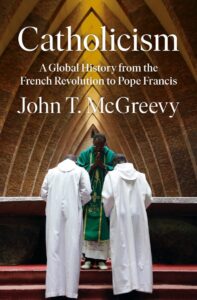
John T. McGreevy, Catholicism: A Global History from the French Revolution to Pope Francis
W.W. Norton, September 6
Like it or not, the Roman Catholic Church is one of the most powerful institutions in the world. As such it contains many parallel and contradictory movements, from the arch-conservative traditionalism of America’s bishops to the more liberatory and egalitarian Catholicism from whence the current Pope comes. How does a religion so vast and multifaceted survive in the face of contemporary secularism? And what’s next for its billion practitioners? Historian John T. McGreevy attempts to answer these questions about the future (and many more) by looking back at the last two tumultuous centuries of the Catholic Church, from the French Revolution to the latest scandals of sexual abuse. –JD
Dipo Faloyin, Africa Is Not a Country
W.W. Norton, September 6
Though we live in notionally post-colonial times the colonial gaze is nonetheless alive and well, and remains the principal framework for the way western media tells stories about an entire continent. Countries in Africa are always “war-torn” or “poverty-stricken,” always suffering from famine or unrest or drought… In his new book, Africa Is Not a Country, journalist Dipo Faloyin sets out to provide balance to some of that evening news miserabilism with a nuanced, thorough, and hopeful look at life in modern-day Africa. Loosely told as a history of seven dictatorships, Faloyin takes us from the urban realities of Lagos to the intensely joyful soccer rivalries of the African Cup of Nations, pausing to call out a post-colonial white savior industrial complex that has caused as much trouble as it has helped. –JD
Stephen King, Fairy Tale
Scribner, September 6
This new Stephen King fantasy novel is bringing me right back to my childhood. It’s big (608 pages!), it’s magical (a portal to another world in the backyard!), it’s epic (a boy and his dog leading the fight against evil). Just what I need to help me escape this hellish timeline for a little while. –ET
Max Fisher, The Chaos Machine: The Inside Story of How Social Media Rewired Our Minds and Our World
Little, Brown, September 6
If you asked a hundred devoted social media users if TikTok/Facebook/Twitter et al. was a net good for the world, the overwhelming answer would be NO. So why is everyone dedicated to spending time doing something they don’t even like? Well, it’s by design. Literally. Max Fisher’s The Chaos Machine is a deep dive into the strategies employed by tech giants to create the most addictive possible platforms for users, all in the name of “engagement.” But it’s more than mere distraction: Silicon Valley algorithms have long-favored the lurid, the titillating, and the sensational—irrespective of any connection to reality—and have essentially created generations of dopamine-hungry screen addicts (hi!) at the mercy of their phones and the lies they tell. The toll it’s all taken on democracy as we know it, though, has yet to be fully understood. –JD
Ling Ma, Bliss Montage
FSG, September 13
Hell yeah, new Ling Ma, and with a delectable cover to boot (by Tim Witherow, with creative direction by Rodrigo Corral). This short story collection by the author of the emotionally-prescient 2018 NYC pandemic novel Severance includes eight dreamy stories, each with a foot in the fantastic and the other foot firmly in the appalling everyday. –ET
Agatha Christie, Marple: Twelve New Mysteries
William Morrow, September 13
Our favorite detective is back in this collection of original short stories. Gathering twelve different writers (Naomi Alderman, Leigh Bardugo, and Alyssa Cole, to name a few), the collection reimagines Miss Marple. Through these reiterations of one of Christie’s most famous detectives, the collection balances the work of preserving Miss Marple’s idiosyncrasies, while bringing to the surface new elements, new facets. –SK
Meghan Gilliss, Lungfish
Catapult, September 13
What exactly is a lungfish? I’m glad you asked. It was the first thing I googled when I saw the title of this novel. They are apparently freshwater vertebrates that can (wait for it) breathe air. In fact, they can even survive without food or water, on land, for up to five years. They plunge themselves into a sort of hibernation, a suspended animation. Lungfish is a fitting title for a book about a woman very much in an in-between state. She finds herself on an island, once inhabited by her grandmother. Her husband is a recovering addict, and her young daughter is a handful. She’s just trying to get by, and in this survival mode, a beautiful story of the self emerges. –KY
Angie Cruz, How Not to Drown in a Glass of Water
Flatiron, September 13
The premise of Angie Cruz’s latest is giving me big Neapolitan-novels-meets-Topics-of-Conversations vibes. Over the course of 12 sessions with a job counselor, 50-something Cara Romero, recently laid off from her factory job, narrates the story of her life—one of love affairs and sisterhood, labor and debt, motherhood and estrangement. I can’t wait to fall into this one. –ES
David Milch, Life’s Work: A Memoir
Random House, September 13
“I’m on a boat sailing to some island where I don’t know anybody. A boat someone is operating and we aren’t in touch.” If you read Mark Singer’s brilliant. heartbreaking New Yorker profile of David Milch back in 2019, you’ll know that the Deadwood creator is fighting a losing battle with Alzheimer’s disease. This memoir—an account of a tumultuous life marked by successes and self-immolations, acclaim and addiction—may be the final word of one of the greatest television writers of all time. As a Deadwood superfan, I shall be hoovering this up the week of its release. –DS
Elisa Gabbert, Normal Distance
Soft Skull, September 13
Elisa Gabbert’s writing always moves in unexpected directions. The author of four poetry collections and two essay collections—including The Unreality of Memory, a series of essays on our relationship to disaster—she’s releasing a new poetry collection, Normal Distance, which promises to include her signature combination of observational insights, philosophical wanderings, and contemporary questions about language. –CS
T.C. Boyle, I Walk Between Raindrops: Stories
Ecco, September 13
Is it weird to say that TC Boyle is underrated at this point? Is it because he writes… too much? Anyway, I’m a big fan of Boyle’s rollicking, propulsive style of storytelling, which is generally employed in aid of revealing the many ways in which contemporary life can feel pretty fucked up, you know? Yeah, you know. I’m looking forward to microdosing these short stories. –JD
Jonathan Dee, Sugar Street
Grove Press, September 13
The unnamed narrator of Sugar Street is attempting the impossible: to erase his identity and his past, and start over as a new, reformed person. We meet him as he’s driving backroads, evading surveillance cameras that could track his journey, with all his savings cashed out and in the car with him: he will begin his life anew with this cash and nothing else, in a town where no one will know him. The narrator wishes to leave behind his “life of privilege” and exist fully anew, trying to be a good person and make up for his wrongs. Meeting the narrator for the first time as he begins his life on the run adds another layer to his quest of starting over: the reader must believe everything he says, until we slowly but surely find our way to the answers of what exactly he is running from. Eye-opening in more ways than one, Sugar Street offers a unique portrait of whiteness and skewed liberalism. –JH
Jim Harrison, The Search for the Genuine: Nonfiction 1970-2015
Grove Press, September 13
When the famed American poet, novelist, and essayist Jim Harrison died in 2016, he left behind a prodigious body of work that included over three dozen books (the most famous of which, Legends of the Fall, he wrote in nine days) as well as a small mountain of acclaimed nonfiction pieces. The Search for the Genuine brings together the very best of these pieces—on everything from Zen Buddhism to shark-tagging, the poems of Pablo Neruda to life on the U.S./Mexico border—and is a must read for devotees and newcomers alike. –DS
Elissa Bassist, Hysterical: A Memoir
Hachette, September 13
In a 2010 Dear Sugar column, Cheryl Strayed (now famously) told Elissa Bassist to “write like a motherfucker.” This was in response to (then 26-year-old) Bassist’s fears of “writing like a girl”: “I write about my lady life experiences, and that usually comes out as unfiltered emotion, unrequited love, and eventual discussion of my vagina as metaphor.” Strayed’s advice clearly landed, because Bassist’s debut memoir is a response to the lifelong imperative she felt to keep quiet and repress her feelings (i.e. rage). I imagine this one will feel cathartic for a lot of women feeling, oh, pretty fucking angry these days. –ES
Andrea Wulf, Magnificent Rebels: The First Romantics and the Invention of the Self
Knopf, September 13
In Andrea Wulf’s biography of the young Romantics/Jena Romanticism, the poets Goethe, Schiller, and Novalis meet with philosophers Fichte, Schelling, and Hegel, and even Alexander von Humboldt (of whom Wulf wrote a wonderful biography in 2016) makes an appearance. An examination of the thinkers who questioned the creative potential of the individual, self-determinism, and the meaning of freedom, Wulf’s research mirrors the “extremely modern tension between the dangers of selfishness and the thrilling possibilities of free will.” –EF
Sandra Cisneros, Woman Without Shame
Knopf, September 13
Sandra Cisneros is widely acclaimed for her numerous works of fiction, performance, and more; this is her first poetry collection in 28 years. Described as a combination of “songs, elegies, and declarations,” the collection looks like a journey toward self-understanding for Cisneros and, possibly, a homecoming. –CS
Kate Beaton, Ducks: Two Years in the Oil Sands
Drawn and Quarterly, September 13
You really can’t ever go wrong with Drawn & Quarterly. Pretty much anything the Montreal comics house publishes will be gold, and the same could be said of Canadian cartoonist and Hark! A Vagrant author Kate Beaton, whose first full length graphic narrative Ducks: Two Years in the Oil Sands—a tale of loneliness and labor in the Albertan oil fields, where the Beaton, an Nova Scotia native, went to work at the age of 21—has already garnered rave reviews from Alison Bechdel, Chris Ware, Patricia Lockwood, and Carmen Maria Machado, among many others. –DS
Andrea Barrett, Natural History: Stories
W.W. Norton, September 13
Andrea Barrett is a much-beloved (and National Book Award-winning) novelist and short story writer, and we’re lucky that she’s gifting us another gorgeous collection. She is a master at exploring both the natural and internal landscapes of her characters. Fans know that she has a magical way of spilling the wonders of the world onto the page. When I think of this collection, I think of a butterfly: of those artists who can pin the wings to the page just so. The way she chains the characters together in these linked stories is also very much the butterfly effect: a powerful statement about the ripples we send into the world, the ways we are connected to others without even realizing it. –KY
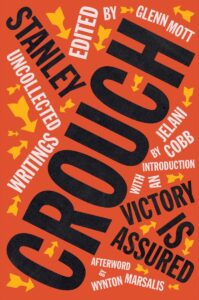
Stanley Crouch, Victory Is Assured: Uncollected Writings of Stanley Crouch
Liveright, September 13
Legendary critic (of jazz, of movies, of books, of culture) Stanley Crouch wasn’t for everyone, possessed as he was of a gruff and candid erudition that could certainly come across as dismissive (to say the least). But I’m pretty excited about these posthumously discovered essays (on his computer!) that range in topic from Malcolm X to Quentin Tarantino. With an introduction by Jelani Cobb. –JD
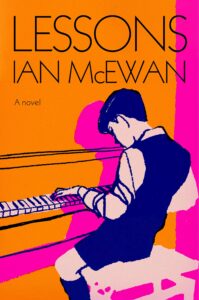
Ian McEwan, Lessons
Knopf, September 13
A journey through history—from just post-WWII to the current pandemic—through the experiences of a single man, who we first meet as an 11-year-old at boarding school and who we follow through traumas, opportunities, and questions both personal and global. –ET
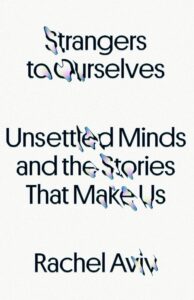
Rachel Aviv, Strangers to Ourselves: Unsettled Minds and the Stories That Make Us
FSG, September 13
Rachel Aviv’s New Yorker pieces are always stunning portraits of people in crisis, but her stories of complex medical mysteries are some of the most striking and memorable pieces of journalism I’ve read. In her debut nonfiction book, Aviv investigates people who have “come up against the limits of psychiatric explanations for who they are”—a woman who lives as a saint, an incarcerated mother recovering after psychosis, a man looking for revenge on psychoanalysts. In examining the way we tell stories about disorders of the mind, Aviv questions the very core of what is normal and what is reality. An incredibly researched, empathetic, and moving book. –EF
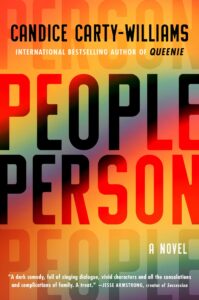
Candice Carty-Williams, People Person
Gallery/Scout Press, September 13
You probably recognize Candice Carty-Williams’ name from her splashy 2019 debut novel, Queenie; I’m looking forward to her sophomore effort, People Person, making waves, too. It centers around Dimple Pennington, a 30-year-old burgeoning lifestyle influencer with little to show for herself beyond her follower count, whose four half siblings (and their mutual absentee father) are thrown suddenly back into her life. As someone with a bevy of paternal half siblings, I find it odd that those family dynamics are so absent from literary fiction—the untapped drama!—so I’m excited to see Carty-Williams bring them to the fore. –ES

David Means, Two Nurses, Smoking: Stories
FSG, September 13
The title story from David Means’s new collection was published in The New Yorker in May 2020, a month into the pandemic: a strange little story where two nurses, flirting over a cigarette, chronicle patients saved and lost. I remember reading it weeks after bringing my baby home from the hospital, in a different sort of world, and thinking that Means had gotten it exactly right—the depths of human despair, the light of empathy. Means is one of the most interesting short story writers working today, shining a light on the most intimate moments. There’s also a story here from the POV of a dog—a personal fave. I’m eager to read this collection. –EF
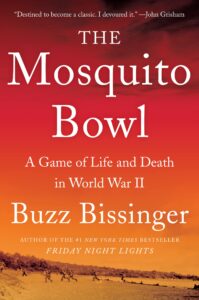
Buzz Bissinger, The Mosquito Bowl: A Game of Life and Death in World War II
Harper, September 13
The latest book from the Pulitzer Prize winning author of Friday Night Lights tells the story of one epic football game, played by the young men of the 4th and 29th Marine regiments—many of them former and future football stars—just a few months before the invasion of Okinawa, where fifteen of the players would be killed, making it the battle in which the most American athletes have ever died. –ET
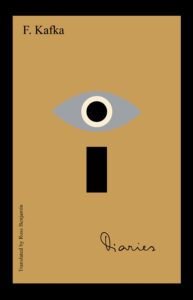
Franz Kafka, tr. Ross Benjamin, The Diaries of Franz Kafka
Schocken, September 13
In this new translation of Kafka’s diaries, Benjamin offers an unexpurgated collection of diary entries that highlight the quintessential Kafkian eccentricities underscoring the writer’s body of work. Beginning with 1909 and ending in 1923, the diary entries range from drawings to accounts of dreams to drafts of letters to daily events. Available in English for the first time, Benjamin’s translation not only emphasizes the significance of diaries in Kafka’s writing and larger life, but also highlights the importance of the diary-from as art in its own right. –SK
Susan Rogers and Ogi Ogas, This is What It Sounds Like: What the Music You Love Says About You
W.W. Norton, September 20
Why do you like the music you like? What is it about that song that makes you drive faster, run further? Why is it impossible for you not to dance when that band comes on? We all know how much music plays a part in our daily lives—how it makes us feel, how it helps us too feel—but what’s going on in our brains when it’s working its magic? Cognitive neuroscientist Susan Rogers (who was the chief engineer on Prince’s Purple Rain!) tries to answer that question by breaking down why we like what we like, and suggests that everyone has a unique “listener profile” based on seven basic elements of any song. –JD
Bobby Finger, The Old Place
G.P. Putnam’s Sons, September 20
Despite the fact that Bobby Finger had brought me countless hours of joy even before I picked this novel up (in the form of Who? Weekly, the podcast he co-hosts with Lindsey Weber), I was not prepared for how much I would love The Old Place. Set in the staid Texas town of Billington, the novel centers on Mary Alice Roth, a widow whose son is grown, and who has recently been forced out of her long-held teaching job, as she begins to rekindle a friendship with her neighbor Ellie—until a secret comes to light that threatens the life she’s built. Finger writes this town, and each of his characters, with deft tenderness. To read The Old Place is to be thoroughly immersed in a place you can’t help but love. –JG
Yiyun Li, The Book of Goose
FSG, September 20
Yiyun Li’s novel of young female friendship in post-WWII rural France has been called propulsive, gripping, and heartbreaking, which is how one would describe any of Li’s award-winning novels and stories. Fabienne and Agnès live in a backwater town, secluded in their private, imaginary world, until Fabienne hatches a plan that sends them to an English boarding school and onto a trajectory of fame and fortune built on an extraordinary lie. Any new novel from Li is one to watch. –EF
Lynda Barry, It’s So Magic
Drawn and Quarterly, September 20
You probably recognize Lynda Barry’s distinctive drawing style from her famous “Ernie Pook’s Comeek,” and subsequently from her books Cruddy, Syllabus, and most recently Making Comics. Fans of this seminal graphic artist will be delighted to know that this year brings us another book from the master. The central question at the heart of It’s So Magic is: How do you connect to the magic of living? It’s a very relatable worry. Amidst the backdrop of *gestures wildly around* all of this, It’s So Magic focuses on one family struggling to find its footing. Lynda Barry is sure to break our hearts but string them back together with the small, hope-giving things that make life worth living. –KY
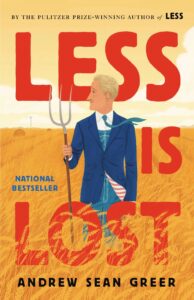
Andrew Sean Greer, Less Is Lost
Little, Brown, September 20
I remember devouring Andrew Sean Greer’s Pulitzer Prize-winning Less in a single afternoon, unable to pull myself away from its tender, lightly painful, and very, very funny portrayal of Arthur Less, a novelist on a world-wide tour, fleeing from heartbreak. Less Is Lost sees Arthur on another tour, this one across the US, and in flight from the death of an old lover and a financial crisis. I can’t wait to enter his world again. –JG
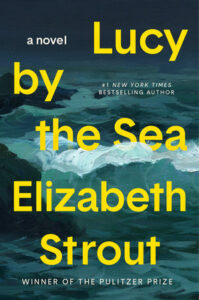
Elizabeth Strout, Lucy by the Sea
Random House, September 20
It’s always a pleasure to spend time in one of Elizabeth Strout’s ecosystems, in which great deep urgency and emotion lies beneath New England plainspokenness. Lucy by the Sea is the fourth novel in Strout’s Amgash series, which follows Lucy Barton, a writer freighted with deep childhood trauma. Lucy by the Sea finds Lucy fleeing New York for Maine at the beginning of the pandemic to stay with her on-again, off-again friend William. I can’t think of anyone better than Strout to render the fear and strangeness of those days with beautiful humanity. –JG
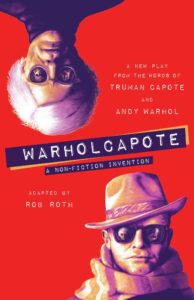
Rob Roth, WARHOLCAPOTE: A Non-Fiction Invention
Simon & Schuster, September 20
In 1978, Andy Warhol and Truman Capote recorded 80 hours of conversations in the hopes that the material would one day help them write a play together. Those plans never came to fruition, and the tapes sat in storage for years until playwright Rob Roth gained access to them (after extensive negotiations with the Andy Warhol Foundation and Capote’s estate). The tapes and their transcripts—which ran thousands of pages long—became Roth’s play WARHOLCAPOTE, a look at the collaboration between the two as they hang out, brainstorm, gossip, and share ideas. Having been produced at the American Repertory Theater in 2017, the play will now be available in book form for the first time. –CS
Stacey D’Erasmo, The Complicities
Algonquin Books, September 20
In Stacey D’Erasmo’s latest novel, Suzanne’s wealthy, comfortable world shatters after the revelation of her husband’s financial crimes. When he’s sent to prison, she tries to rebuild her life and create a new identity in a small beach town, severing all ties with him. Upon his release, with the demands for restitution coming from those he harmed, Suzanne must grapple with her own complicity–and what to do about it. Samantha Hunt calls The Complicities a “gripping, human tale of our crimes—financial, environmental, self-delusional” that is “impossible to put down.” –JG
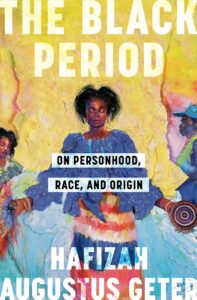
Hafizah Augustus Geter, The Black Period: On Personhood, Race, and Origin
Random House, September 20
This memoir by Hafizah Augustus Geter, grounded in the story of her relationship with her family, promises to be an exploration of Black and Muslim life, queerness, disability, and the systems that push people with those identities to the side—as well as the ways that they innovate to continue creating art and joyful community. I’m looking forward to reading this new work from her. –CS
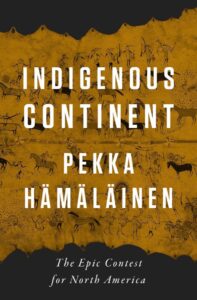
Pekka Hämäläinen, Indigenous Continent: The Epic Contest for North America
Liveright, September 20
In this volume, the prize-winning historian and Rhodes Professor of American History at Oxford University rewrites 400 years of American history through an Indigenous lens, creating “a sweeping counternarrative that shatters the most basic assumptions about American history.” This is sure to be fascinating reading for anyone who grew up hearing that same old foundational myth of America—you know, that one that doesn’t exactly hang together. –ET
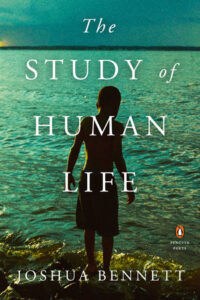
Joshua Bennett, The Study of Human Life
Penguin Books, September 20
Tracy K. Smith has described Joshua Bennett as an “astounding, dolorous, rejoicing” writer, and now—having received a Guggenheim Fellowship, a Whiting Award, a fellowship from the National Endowment for the Arts, and other recognition for his extensive work in poetry and criticism—he’s sharing another collection, The Study of Human Life. With a singularly expansive and compassionate view of history, Bennett sweeps across generations of joy, suffering, and connection. I’m looking forward to seeing what this new collection holds. –CS
Chelsea Martin, Tell Me I’m an Artist
Soft Skull, September 20
This book. Seriously, this book. My absolute favorite of the year: Tell Me I’m An Artist is a stunning, hilarious, perfect ode to growing up and growing into yourself as a girl, a person, a friend, a family member, and an artist. One of the most influential conversations I’ve had in my life was with a musician who told me that the self-doubt and shame I was going through in regards to my own music was not abnormal and wrong, but in fact a common side effect of trying to live as an artist, and I have never read such an honest and humble account of this process and acceptance until this novel. Joey is a student attending art school in San Francisco, but while her friends are clearly from well-off, privileged households, Joey grew up poor with her single mother and troubled, drug-addicted sister—who has abandoned her baby and is currently missing. Joey tries to balance the facts of her two worlds: the privileged bubble of art school where she feels out of place and alone, but excited and open, and the very real hardship that’s occurring in her family as she is trying to start over in San Francisco. Tell Me I’m an Artist is a masterpiece and a piece of comedic genius; I loved it and so will you. –JH
Nick Cave and Seán O’Hagan, Faith, Hope and Carnage
FSG, September 20
This is “a book about Nick Cave’s inner life” that draws on over forty hours of conversations with journalist Sean O’Hagan. I can only expect it will be bonkers (and fascinating). –ET
Namwali Serpell, The Furrows
Hogarth, September 27
Namwali Serpell’s latest book follows the fallout from a family’s tragic loss after their son disappears at the age of seven, his body never found. Serpell, who won the 2020 Windham-Campbell Prize for fiction and 2015 Caine Prize for African Writing, is one of the world’s most exciting contemporary novelists, and I’m eagerly anticipating this new work from her. –CS
Hua Hsu, Stay True: A Memoir
Doubleday, September 27
Hua Hsu’s memoir is an elegy for a friend lost to a senseless act of violence, and one of the finest and most heart-rending remembrances I’ve ever read. Hsu writes about grief and nostalgia, youth and identity, family and friendship, with elegant, heartbreaking clarity. I wanted to linger over every memory, to stay with Hsu as he rendered the vast expanses of time that defined youth—car rides, browsing at record stores, collaging together an identity from loves and hates. This is a book of exquisite pain and beauty. Absolutely unmissable. –JG
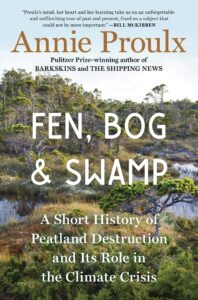
Annie Proulx, Fen, Bog and Swamp: A Short History of Peatland Destruction and Its Role in the Climate Crisis
Scribner, September 27
A lifelong environmental activist whose fictions are infused with a deep appreciation for the natural world, Annie Proulx (The Shipping News, “Brokeback Mountain,” Barkskins) seems the ideal guide to the world’s wetlands and the vital but little understood role they play in maintaining ecological balance. In Fen, Bog and Swamp, the Pulitzer- and National Book Award-winning author takes us on a journey from Canada’s Hudson Bay lowlands to Russia’s Great Vasyugan Mire, from the fens of 16th-century England to the 19th-century Amazon Rainforest, and issues a stark warning about the degradation of the natural world. –DS
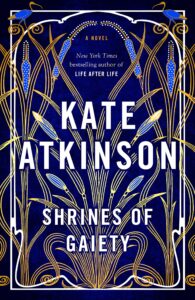
Kate Atkinson, Shrines of Gaiety
Doubleday, September 27
A new Kate Atkinson novel is always a cause for celebration in my house. Shrines of Gaiety—set in the world of 1920s London nightlife—sounds like it will beautifully combine elements of—Atkinson’s previous standalone novels (Life After Life and A God In Ruins, both set in the years during and between the two wars) and her Jackson Brodie crime novels. It tells the story of Nellie Coker, a ruthless, ambitious nightlife queen and mother of six whose success has made her a target for all manner of enemies. –JG
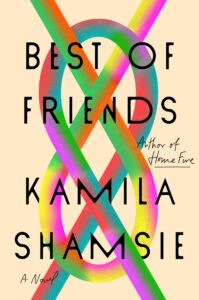
Kamila Shamsie, Best of Friends
Riverhead, September 27
Have you ever had a longtime friend with whom you shared surprisingly little—even down to values? That describes Zahra and Maryam, close since their childhoods in Karachi, with much unspoken between them (including those pesky values, as well as a dramatic event from their adolescence), until something happens that forces everything to the surface. If you love a complicated friendship story, this one’s for you. –ES
OCTOBER
Celeste Ng, Our Missing Hearts
Penguin Press, October 4
In her first novel since the runaway hit Little Fires Everywhere, Celeste Ng ventures into (slightly) speculative fiction territory. Our Missing Hearts tells the story of 12-year-old Bird Gardner, who lives with his father in a near future governed by laws written to “preserve American culture.” Bird’s mother, a Chinese American poet whose work has been banned from libraries, left the family when he was nine. When a mysterious drawing spurs a quest to find her, Bird relies on an underground network of librarians and ancient folktales to guide him. Like Ng’s previous novels, this one promises to be thrillingly paced and deeply felt. –JG
Christopher M. Hood, The Revivalists
Harper, October 4
In Hood’s post-pandemic (Shark Flu, in this case) novel, two survivors are just beginning to rebuild when they discover that their daughter has joined a cult clear across the country—and they drop everything to travel the dying nation to save her. Karen Russell called it “a thrilling, terrifying, surprising, and tender debut,” and Matthew Thomas wrote that “it’s hard to imagine a story more necessary now than one about humanity somehow persisting in the face of civilization’s collapse.” Can’t disagree with that; very much looking forward to this one. –ET
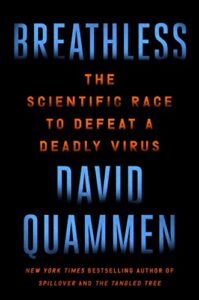
David Quammen, Breathless: The Scientific Race to Defeat a Deadly Virus
Simon & Schuster October 4
There have been a lot of Covid books considering the pandemic hasn’t so much gone away as adapted itself into what we now think of as daily life. But if there’s anyone who could legitimately write scientific history as it’s happening it’s David Quammen, the highly honored, prolific writer of science-inflected nonfiction (I highly recommend The Tangled Tree). With Breathless, Quammen puts on his explainer hat to take us through the rise of SARS-CoV-2, unpacking its origins, outlining its evolutions, and providing a blueprint for what comes next in our perennial battle with infectious disease. –JD
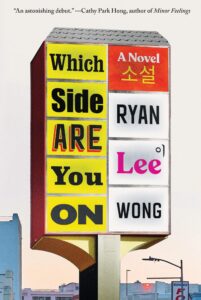
Ryan Lee Wong, Which Side Are You On
Catapult, October 4
What does it look like to devote your life to activism? How can you be a good, authentic ally to others? How can you lead a happy life when your life’s work is so wrapped up in trauma and systemic oppression? These are some of the big and timely questions that carry us through Ryan Lee Wong’s debut. Which Side Are You On centers on Reed, a 21-year-old burgeoning community organizer, who wants to dedicate himself fully to the Black Lives Matter movement after an Asian American police officer kills a Black man. His mother (the former leader of a Korean-Black coalition) acts as a guiding light, forcing him to think through these larger questions. You’ll feel like you’re right there in Los Angeles, a fly on the wall of these important conversations. But this is not a strictly somber novel by any means! It’s a wonderful balancing act, tackling serious topics with humor and heart. –KY
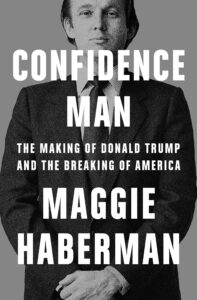
Maggie Haberman, Confidence Man: The Making of Donald Trump and the Breaking of America
Penguin Press, October 4
Maggie Haberman arguably knows more about Donald Trump than almost anyone else; having followed him through his early days in New York to the presidency and, now, his post-presidency, she’s written Confidence Man, which looks at his formation in each of those stages, detailing the circumstances and relationships that brought him there. Billed by Penguin Press as the “definitive account of one of the most norms-shattering and consequential eras in American political history,” I’m looking forward to seeing what the book contributes to Haberman’s extensive reporting and what her experience with Trump has shown her about the inner workings of the political system. –CS
Elizabeth McCracken, The Hero of This Book
Ecco, October 4
Elizabeth McCracken’s latest novel has at its center the relationship between the narrator and her mother, who recently died, following the reflections of the narrator as she visits London. McCracken’s writing is always delightful, and I have no doubt that this story of grief will offer plenty of light moments along with a bittersweet look at the complicated love between a mother and daughter. –CS
Sharon Olds, Balladz
Knopf, October 4
In comparison to the stark black and white covers of Odes, then Arias, the cover of Balladz is an explosion of color and joy. Along with that color and joy come the typical Oldsian themes: interrogation of self and others, one’s parents, one’s childhood, one’s crutches, one’s downfalls. Sharon Olds has never shied away from the hard conversations: she asks for a lot from the people in her life, and she asks for a lot from herself. She does not work with blame—she looks directly at the wound and that is its own healing. Balladz includes quarantine poems, born from that period of intense isolation and self-searching, that ruminate on mortality, age, childhood, all bundled together in both sorrow and joy. –JH
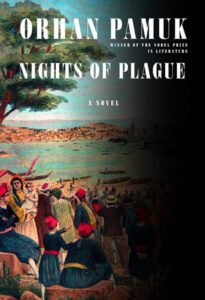
Orhan Pamuk, Nights of Plague
Knopf, October 4
I would read anything by Orhan Pamuk, and this upcoming novel by him sounds especially fascinating: a sweeping historical epic, set on the fictional island of Mingheria in the Ottoman Empire circa 1900, where a plague begins to spread and a mysterious crime occurs. It seems sure to be an absorbing story with plenty of (unfortunate) relevance for the present day. –CS
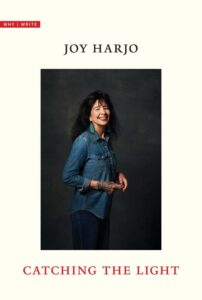
Joy Harjo, Catching the Light (Why I Write)
Yale University Press, October 4
I’m not sure America deserves Joy Harjo. As a poet and an activist she has led a model life for those of us who understand that art does more than merely distract or entertain, that it can in fact be a delivery system for dreams of a more just world. In Catching the Light, Harjo looks back at 50 years of writing, how it has shaped her life and led her to places of discovery, community, and joy. –JD
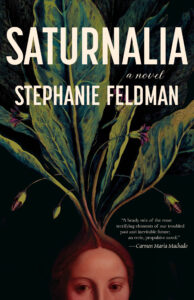
Stephanie Feldman, Saturnalia
Unnamed Press, October 4
This novel has everything I like: elite societies with arcane rituals, visions of the cracked future, wild parties, dark secrets, outsiders, a thrum of magic underneath. Carmen Maria Machado called it “a heady mix of the most terrifying elements of our troubled past and inevitable future; an eerie, propulsive novel”—as if I weren’t going to read it already. –ET

Thomas E. Ricks, Waging a Good War: A Military History of the Civil Rights Movement, 1954-1968
FSG, October 4
It’s always worth noting when a Pulitzer Prize-winning historian comes out with a new book, but Thomas E. Ricks latest feels eerily, disquietingly timely. In delving into the mid-century struggle for civil rights, Ricks has chosen to focus on the strategies of various movements for Black liberation and equality, mapping them over traditional military approaches to large-scale conflict: what worked, what didn’t, and why. Handy information to have as the fight for civil rights in America is far from over. –JD
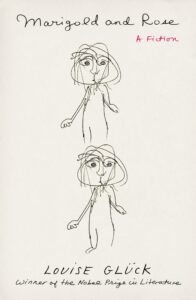
Louise Glück, Marigold and Rose: A Fiction
FSG, October 4
After more than a dozen collections of poetry, Louise Glück is giving us Marigold and Rose, the fictional story of two twins in their first year of being alive. If that premise alone doesn’t immediately set you on fire, I don’t know what to tell you; I want to walk with Glück into that unknowable world. –CS
Lucy Ives, Life is Everywhere
Graywolf, October 4
When we meet Erin, her life is sort of a mess. Her husband has left her. There’s some tension between her and her parents. And to top it off: she’s locked out of her apartment! We’ve all been there. It’s just one of those days, but Erin manages to turn this terrible evening into one of incredible self-discovery. At a loss for what to do next, she hunkers down at her grad school library and starts sifting through two manuscripts she’s been working on. I’m a big fan of the up-all-night, digressive kind of storytelling. And you just know that the author who brought us Cosmogony is going to take us through some incredible tangents. –KY
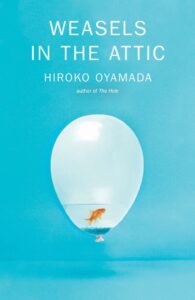
Hiroko Oyamada, tr. David Boyd, Weasels in the Attic
New Directions, October 4
If you haven’t read Hiroko Oyamada’s The Hole, you still have time before her new collection comes out! But consider yourself warned: it’s not for the faint of heart. There is an uncanny and chilling quality to her writing that I’m sure will carry into her new collection, which seems to burst with creatures: exotic fish, the eponymous weasels. As in her other novels, Hiroko Oyamada is a master at backing her characters into corners. Through David Boyd’s wonderful translation (he also brings us Mieko Kawakami in English!), she wields the surreal in surprising ways. –KY
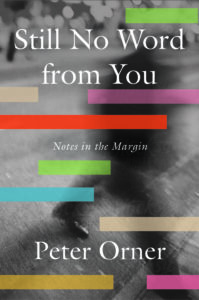
Peter Orner, Still No Word from You: Notes in the Margin
Catapult, October 11
Peter Orner is a writer’s writer—not exactly a household name, but those who know, know. Since all writers are also readers, his fans should particularly appreciate this volume of essays and other musings on the writing life, the reading life, and the living life, which are all, of course, inseparable. I am very much looking forward to living inside Orner’s brain (and bookshelf) for a while. –ET
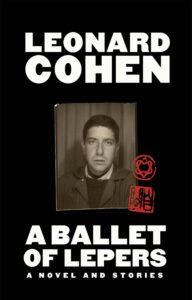
Leonard Cohen, A Ballet of Lepers: A Novel and Stories
Grove Press, October 11
When you hear the name “Leonard Cohen,” you probably automatically sink into the warmth and heartbreak of “Hallelujah.” (The first time I heard that song was, admittedly, while watching Shrek as a kid, but it rattled me, even then!) His writing has always had a magical quality, and it is a pleasure to see his early work, to watch him grapple with the questions that continued to follow him his whole career. Fans of Leonard Cohen should rejoice, for A Ballet of Lepers is an unexpected gift. This never-before-published novel and stories (and a radio-play!) read like the beloved singer-songwriter is reaching out to us and holding us still. –KY
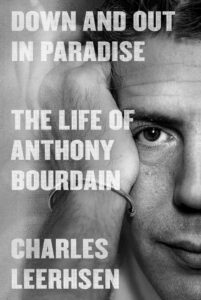
Charles Leerhsen, Down and Out in Paradise: The Life of Anthony Bourdain
Simon & Schuster, October 11
When we lose wonderful, thoughtful, unforgettable minds like Anthony Bourdain, the only consolation can be that they’re not around to see how bad things have gotten. But wouldn’t it be great to have Bourdain’s take on the Capitol Riots? Or to bathe in his incandescent rage over Roe v. Wade? Though I’m wary of any “definitely unauthorized” biography, I’m curious to read more about what made the legendary chef-cum-writer tick. –JD
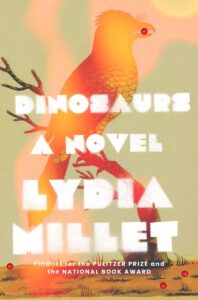
Lydia Millet, Dinosaurs
W.W. Norton, October 11
Lydia Millet’s follow-up to 2020’s excellent A Children’s Bible is is a realist novel, but it’s also a Millet novel, and so the realism is shinier than usual. You have an accidental millionaire who walks from New York to Arizona, a house with one wall made of entirely of glass, a castle next door (where the millionaire lives), a lot of beguiling wildlife, a Friendly Man, an outrageous request, and a nighttime confrontation in which one party is dressed as a bat. At first it’s hard to see where it’s all going, but in the end, it adds up to more than the sum of its parts: a charming little gem of a book, with implications that will stick with you for some time. –ET
Alan Moore, Illuminations: Stories
Bloomsbury, October 11
Love Watchmen? And V for Vendetta? Hungry for… Moore? (Sorry.) Alan Moore is coming out with his first story collection that is definitely going to be every bit as weird and supernatural as the work we know and love him for. The four horsemen of the apocalypse, ghosts, sorcerers in a brothel—his imagination knows no bounds. –KY
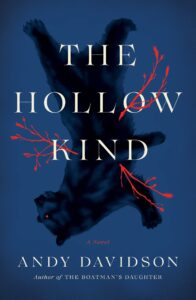
Andy Davidson, The Hollow Kind
MCD, October 11
A creaky old family mansion, a blood lineage, and the weight of ancestors’ wrongdoing—who could ask for more in a ghost story? But there is more, and then some, in The Hollow Kind. Nellie Gardner needs to escape from her abusive marriage, and when she finds out that her grandfather willed her the family estate, and she and her 11-year-old son immediately flee to their new home. It doesn’t take long for them to realize they are in a different kind of danger on the property: something is at work in the land, and in the house, a corrupted soul, an ancient hunger for blood, for evil. The Hollow Kind is more than a ghost story: it is a reckoning with the fact of money, land, power, and the darkness that looms in family history. –JH
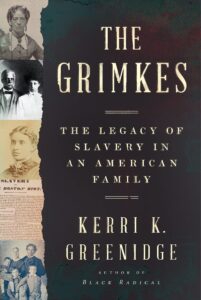
Kerri K. Greenidge, The Grimkes: The Legacy of Slavery in an American Family
Liveright, October 11
Sarah and Angelina Grimke were antislavery crusaders, remembered and celebrated for leaving their lives as slave-owners on a plantation in South Carolina to work towards abolition in the North. But Kerri K. Greenidge’s counternarrative focuses on the Grimke’s Black relatives—the offspring of their brother and Nancy Weston, one of the enslaved people he owned. These women had full, complex lives, reimagining “Blackness and womanhood in terms far more radical than their white relatives would have allowed.” An important narrative history, which, like Greenidge’s prize-winning biography of William Monroe Trotter, recontextualizes the roots of Black America. –EF
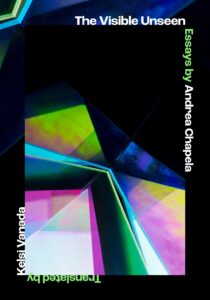
Andrea Chapela, tr. Kelsi Vanada, The Visible Unseen
Restless Books, October 11
Andrea Chapela has degrees in chemistry and creative writing, and she melds the two in this fascinating essay collection that challenges the “cultural divide between arts and science.” Both a scientific history of light and a personal exploration of self-image, The Visible Unseen is an exciting, innovative project from one of Granta’s Best Young Spanish-Language Novelists. –ES
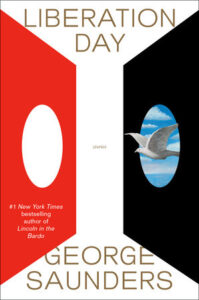
George Saunders, Liberation Day
Random House, October 18
George Saunders is only getting more George Saunders-y in his latest collection of stories, his first since 2013’s Tenth of December. These nine stories, five of which were previously published in The New Yorker, are playful, inventive, and sneakily affecting as ever. –ET
John Irving, The Last Chairlift
Simon & Schuster, October 18
It’s been well over a decade since I picked up a book by John Irving—whose brilliant early novels The World According to Garp (1978), The Hotel New Hampshire (1981), and The Cider House Rules (1985) were some of my favorites way back when—so I think it’s high time I squeezed myself into the old wrestling unitard and got back in the Irving game. The 80-year-old Canadian’s latest, billed as a ghost story and a love story, is about a man in search of answers about his origins who makes a pilgrimage to the Aspen hotel where he was conceived. –DS
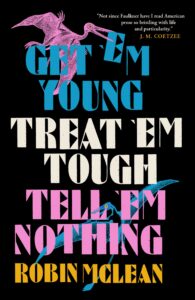
Robin McLean, Get ’em Young, Treat ’em Tough, Tell ’em Nothing
And Other Stories, October 18
This collection from the author of Pity the Beast is already eliciting comparisons to Denis Johnson and Flannery O’Connor. “These stories, they churn and turn with ferocious pace and a brute subject-verb force,” writes Chris Bachelder. “McLean is a writer of pure conviction, unafraid of risk, unconcerned with convention, objective but deeply humane, alive to wonder and strangeness.” I can’t wait to get my hands on this. –ET
Fatimah Asghar, When We Were Sisters
One World, October 18
I’ve loved Fatimah Asghar’s work for years, especially her debut poetry collection, If They Come for Us (though she also co-created the amazing web series Brown Girls, which is worth checking out). Now, her first work of fiction, When We Were Sisters, focuses on three siblings who take care of one another after the death of their parents. Coming from a storyteller who is gifted in so many areas, this book promises to be an exciting project. –CS
Peter Brooks, Seduced by Story: The Use and Abuse of Narrative
NYRB, October 18
From scholar and critic Peter Brooks, author of Reading for the Plot, a new book about everyone’s favorite thing: the story. As Brooks writes, “there’s nothing in the world more powerful than a good story. Nothing can stop it. Nothing can defeat it.” (As if we haven’t learned that all too well recently). For writers, readers, and citizens of the story-addled world. –ET
Alan Rickman, Madly, Deeply: The Diaries of Alan Rickman
Henry Holt, October 18
If Alan Rickman and his magnificent voice ever turned in a bad performance, I haven’t seen it; nor, for that matter, do I wish to see it. Rickman, who died of pancreatic cancer in 2016, had a legit claim to the mantle of King of the Movie Villains—having masticated the screen with aplomb in his portrayals of Hans Gruber, the Sheriff of Nottingham, Severus Snape, Judge Turpin, and Rasputin—but he was also a RADA-trained, Tony-nominated stage actor, as well as a lifelong political activist and humanitarian. These diaries, a 25-year passion project for Rickman, promise to “invite readers backstage and into his life.” –DS
Paul Newman, The Extraordinary Life of an Ordinary Man: A Memoir
Knopf, October 18
The late, great Paul Newman—iconic movie star, consummate wife guy, and creator of cookies and salad dressings that are both altruistic and delicious—began work on his memoir more than 30 years ago. The project started as an oral history project put together by Newman and his closest friend, screenwriter Stewart Stern, and the book was culled from thousands of pages of transcripts from the resulting interview. It promises to be a fascinating look at the life of—with apologies to the book’s modest title—and extraordinary man. –JG
Manuel Muñoz, The Consequences
Graywolf, October 18
The first short story collection in fifteen years from three-time PEN/O. Henry Award winner Muñoz whom Sandra Cisneros has called “a great American writer who sees with his heart―as great as Juan Rulfo in writing about the poor.” The stories in The Consequences are mostly set in the 1980s in the small towns of California’s Central Valley and vividly depict the lives and struggles of Mexican and Mexican American farm workers and their families. –DS
Barbara Kingsolver, Demon Copperhead
Harper, October 18
The latest novel from the author of The Bean Trees and Unsheltered offers a modern take on Charles Dickens’ David Copperfield. The Dickens classic is a Victorian story of abandonment and poverty, and the long-ranging ramifications on the children who must grow up too soon. Kingsolver takes these themes (and Dickens’ plot structure) and superimposes them on current-day southern Appalachia: the main character is born to a teenaged single mother in a trailer in the mountains, and must contend with the lot he was given in life. Poverty, hunger, foster care, abuse, and discipline are all facts of his young existence, as he tries to carve a place for himself in a world that’s all but forgotten about him. –JH
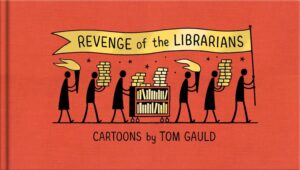
Tom Gauld, Revenge of the Librarians
Drawn & Quarterly, October 18
Everybody loves Tom Gauld. Even if you don’t recognize the name, I guarantee you’ve come across one of his New Yorker covers or weekly Guardian strips. You may already be a superfan of the bookish, deadpan Scottish cartoonist—whose previous books include Baking with Kafka, Mooncop, Goliath, and You’re All Just Jealous of My Jetpack—and are at this moment indoctrinating your progeny into the Church of Gauld by reading them his delightful 2021 children’s story, The Little Wooden Robot and the Log Princess. Either way, this new collection of literary cartoons (tagline: ‘Confront the specter of failure, the wraith of social media, and other supernatural enemies of the author’) is not to be missed. –DS
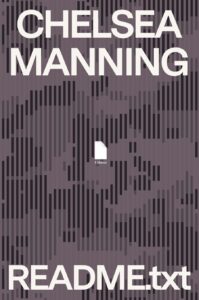
Chelsea Manning, README.txt: A Memoir
FSG, October 18
This fall, FSG is publishing a memoir by Chelsea Manning, the US Army intelligence analyst who famously announced her gender identity and began transitioning after she was convicted of leaking sensitive documents in 2011, and whose sentence was commuted by President Obama in 2017. According to the publisher, in the book “Manning recounts how her pleas for increased institutional transparency and government accountability took place alongside a fight to defend her rights as a trans woman. She reveals her challenging childhood, her struggles as an adolescent, what led her to join the military, and the fierce pride she took in her work. We also learn the details of how and why she made the decision to send classified military documents to WikiLeaks. This powerful, observant memoir will stand as one of the definitive testaments of the digital age.” –ET
Erica Hannickel, Orchid Muse: A History of Obsession in Fifteen Flowers
W.W. Norton, October 18
Have you ever tried to keep an orchid alive? My father, who has grown orchids easily in apartments and houses all over Brooklyn, has masochistically gifted me many plants over the years and after one beautiful, strange bloom they tend to die or refuse to flower until years later, when he moves them six inches to the left on my windowsill and they bloom again. So I’m excited to read this survey of the plant that tortures many home-botanists—following plant hunters, royalty like Empress Eugenie and Queen Victoria, and artists like Frida Kahlo, and Margaret Mee. A kaleidoscopic look at orchidomania, including tips from home-grower Hannickel on how to keep them alive. (NB: The ice cube trick does not work!) –EF
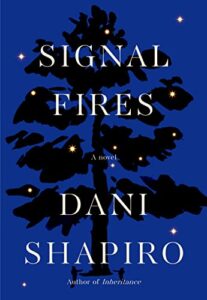
Dani Shapiro, Signal Fires
Knopf, October 18
According to EW, the story behind Dani Shapiro’s first novel in 15 years is one that should give hope to those of us with discarded manuscripts: on a cleaning spree in the early days of quarantine, Shapiro rediscovered the scrapped novel and returned to it with gusto. What we know thus far is it takes place for a group of characters across three points in time: Y2K, December 2010, and 2020—though it’s decidedly not a pandemic novel. Even if it were, I’d still be looking forward to it. –ES
Cormac McCarthy, The Passenger
Knopf, October 25
As we learned earlier this year, a full sixteen years after publishing The Road, Cormac McCarthy has not one but two new novels for you this season. They are sibling books that tell sibling stories, in this case Bobby and Alicia Western, the children of one of the inventors of the atom bomb. The Passenger, set in 1980, focuses on Bobby, “a salvage diver, haunted by loss, afraid of the watery deep, pursued for a conspiracy beyond his understanding, and longing for a death he cannot reconcile with God.” When Bobby explores the wreckage of a crashed jet and discovers that one of the passengers is missing, he gets drawn into a high-stakes mystery. According to The New York Times, both The Passenger and its sister book, Stella Maris, mark something of an evolution for McCarthy—in them, “he tackles more cerebral subjects: the history of math and physics, the nature of reality and consciousness, whether religion and science can coexist, and the relationship between genius and madness.” –ET
John A. Farrell, Ted Kennedy: A Life
Penguin Press, October 25
John A. Farrell’s 2017 biography of Richard Nixon, Richard Nixon: The Life, was one of the most critically acclaimed presidential biographies of the 21st century (not to mention a Pulitzer Prize finalist and PEN Award-winner). Even more significantly, Farrell unearthed new evidence which confirmed that Nixon sabotaged Vietnam peace talks on the eve of the 1968 election. Has he excavated something similarly sensational in his research for Ted Kennedy: A Life (which promises to “do full justice to this famously epic and turbulent life of almost unimaginable tragedy and triumph”)? I for one am eager to find out. –DS
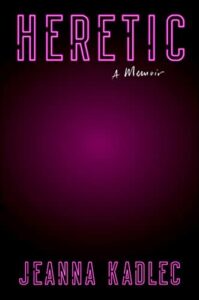
Jeanna Kadlec, Heretic: A Memoir
Harper, October 25
Jeanna Kadlec’s memoir—about leaving her religious community and a heterosexual marriage, and coming into her own as a queer person and ex-evangelical—is also a critique of what evangelical Christianity has done to our culture, and the harm it has done to individuals, as it has infiltrated the everyday flow of life and politics. In so generously offering her own experience with these issues, Kadlec is inviting us to re-examine our own lives and reject anything that would restrict us from living as our full selves in favor of a joyful, open, freer path. I’ve loved Kadlec’s work for a long time—she writes with the bold, clear voice of someone who has been there and back, and has now settled in to tell you the real deal—and I couldn’t be more excited to hear more from her personally, especially on these important, timely issues. –CS
Siddhartha Mukherjee, The Song of the Cell: An Exploration of Medicine and the New Human
Scribner, October 25
Siddartha Mukherjee won a Pulitzer Prize for The Emperor of All Maladies, his 2010 “biography of cancer,” and has now set his sights on that basic building block of all life, the cell. Beginning with its discovery in the 1600s Mukherjee traces our ever-evolving understanding of the human cell, from our ability to save a life to our attempts to create a new one in a laboratory (but did we ever stop to ask if we should?). –JD
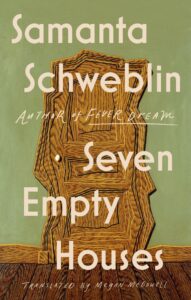
Samanta Schweblin, tr. Megan McDowell, Seven Empty Houses: Stories
Riverhead, October 25
Samanta Schweblin stories! I repeat: Samanta Schweblin stories! Having developed somewhat of a cult following with her surreal, unsettling books Fever Dream, Mouthful of Birds, and my personal favorite, Little Eyes, Schweblin’s latest in translation looks to be just as uniquely satisfying: seven tales of seven houses, each haunted in their own ways. October reading at its finest. –ES
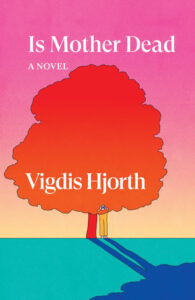
Vigdis Hjorth, Is Mother Dead
Verso Books, October 25
In 2019, Vigdis Hjorth’s novel Will and Testament was a bit of a sensation; a propulsive novel about family secrets and inheritance, further complicated by abuse—and the book’s autobiographical elements which made it a controversial literary sensation (Hjorth’s sister even wrote her own novel in response.) In Is Mother Dead, Hjorth returns to similar themes of family and estrangement. Johanna, a middle-aged artist, returns to Oslo for a retrospective of her work. She attempts to reconnect with her mother, but she doesn’t pick up the phone. Johanna continues to call and text her, fixating on reaching her despite surfacing memories of an unhappy childhood. She continues to stalk her mother—hiding out in her mother’s building, following her, and going through her trash—resulting in a memorable story of surveillance and psychological torment. –EF
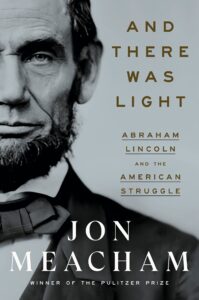
Jon Meacham, And There Was Light: Abraham Lincoln and the American Struggle
Random House, October 25
From the Pulitzer Prize–winning biographer of Andrew Jackson and Thomas Jefferson, a complex portrait of Honest Abe. “So much more than another account of Abraham Lincoln’s life, Jon Meacham’s profound new biography dives into Lincoln’s very soul, and the result is one of the most compelling and absorbing portraits ever crafted,” writes Harold Holzer. “This is a book of such high drama and deep emotion that it instantly takes its place at the forefront of the Lincoln literature.” Coincidentally, this year marks 100 years since the dedication of the Lincoln Memorial, and still we are fascinated by its subject. –ET
Ken Burns, Our America: A Photographic History
Knopf, October 25
Ken Burns, the filmmaker and documentarian who has made moving depictions of our country and subcultures such as The Civil War, The Central Park Five, and Country Music, is now publishing his first photo book. Our America is compiled of the photographs that, for Burns, sum up the vast and multifaceted heart and soul of our country. Chronicling America from 1839 to 2019, these photographs are both well-known and obscure, faces of celebrities and faces of laypeople, stunning images of landscapes and national parks alongside deserted towns and scenes of destruction. Just as arresting and poignant as his films can be, Burns has gathered a striking collection that depicts America in all its glory and grimness. –JH
Nicholas Dawidoff, The Other Side of Prospect: A Story of Violence, Injustice, and the American City
W.W. Norton, October 18
Unjust incarceration, glaring iniquity, life-shattering gun violence… Nicholas Dawidoff’s The Other Side of Prospect is just about the most American story one could tell in the year 2022. Back in 2006, a 16-year-old New Haven teen named Bobby was convicted for the shooting death of Pete Fields, and was sentenced to 38 years in prison. Though eventually exonerated the story of Bobby’s unjust incarceration is both sadly common and starkly illustrative of the broken promises of the American dream—and the racism that underlies it. –JD
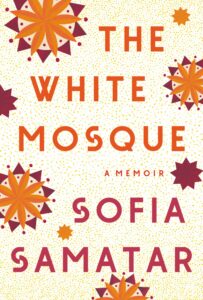
Sofia Samatar, The White Mosque
Catapult, October 25
How does history, with all its strange twists and turns, shape personal identity? The daughter of a Swiss-Mennonite and a Somali-Muslim, Sofia Samatar muses on this question while traveling to Uzbekistan to unearth the forgotten story of “The White Mosque,” a German-speaking Mennonite village that relocated from Russia to Central Asia for the return of Christ. I love a memoir-meets-journalistic-investigation (meets peculiar-slice-of-history), so this one’s high on my list. –ES
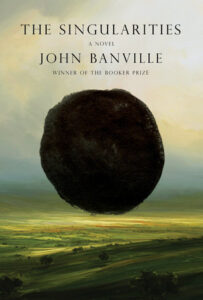
John Banville, The Singularities
Knopf, October 25
The latest from the prolific Booker Prize-winner will be particularly gratifying to longtime fans, who may recognize a character or two in this “playful, multilayered novel of nostalgia, life and death, and quantum theory.” –ET
Darryl Pinckney, Come Back in September: A Literary Education on West Sixty-Seventh Street, Manhattan
FSG, October 25
This might be the book I’m most excited about in 2022. From the description: “Critic and writer Darryl Pinckney recalls his friendship and apprenticeship with Elizabeth Hardwick and Barbara Epstein and the introduction they offered him to the New York literary world.” If you don’t immediately understand why that sounds amazing, maybe this isn’t the website for you. –JD
NOVEMBER
RJ Young, Requiem for the Massacre
Counterpoint, November 1
It’s been just over a century since the Tulsa massacre, one of the worst and most notorious acts of racial violence in modern American history. In this new book, writes Kaitlyn Greenidge, RJ Young “rescues an event that has already crossed over for many into myth, returning it to its human origins and reminding us of the toll of its historical afterlives.” Essential reading for the next hundred years. –ET
Katherine Dunn, Toad
MCD, November 1
It feels like forever ago that we learned that MCD would be blessing us with not one but two previously unpublished Katherine Dunn books. This, at last, is the first one, a campus novel inspired by Dunn’s time at Reed College, which the publisher describes as “colorful, crass, and profound” as well as “daring and bizarre” (much like Geek Love). We are not worthy. –ET
Percival Everett, Dr. No
Graywolf, November 1
A caper novel from the great Percival Everett starring a mathematician who literally studies the concept of “nothing”? Does it feature a kind of femme fatale named Eigen Vector? Is there a heist involved? Even just a YES to one of these questions would do it for me, but wow. –JD
Dorthe Nors, tr. Caroline Waight, A Line in the World: A Year on the North Sea Coast
Graywolf, November 1
The North Sea—bordered by Norway, Denmark, Germany, Great Britain, and several other northern European countries—is the beguiling setting for this nonfiction book by Dorthe Nors. Her year-long voyage on the coast turned into this meditation on the area’s landscape and history and the communities that make their home there today. –CS
Joy Harjo, Weaving Sundown in a Scarlet Light: Fifty Poems for Fifty Years
W.W. Norton, November 1
A celebration of three-time US Poet Laureate Joy Harjo’s half century as a poet, Weaving Sundown in a Scarlet Light brings together 50 of Harjo’s most beloved poems, drawn from her nine volumes of verse, “beginning with her early discoveries of her own voice and ending with moving reflections on our contemporary moment.” This indispensable compendium by a true living legend, the kind every poetry lover should be putting at the top of their Holiday wish list, also features a foreword by The House on Mango Street author Sandra Cisneros. –DS
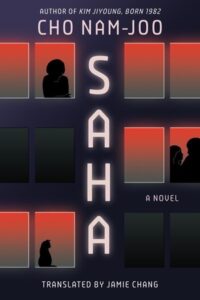
Cho Nam-Joo, tr. Jamie Chang, Saha
Liveright, November 1
Cho Nam-Joo’s Kim Jiyoung, Born 1982, an artful treatise on misogyny, was an international bestseller, and in her newly translated Saha, she turns her keen eye to disenfranchised workers and the depraved corporations who abuse them. The residents of Saha Estates, located in a former fishing village bought out by an Orwellian conglomerate, aren’t valuable in the eyes of their capitalistic overlords. Nam-Joo tells their stories in this haunting, necessary read. –ES

Timothy Bella, Barkley: A Biography
Hanover Square, November 1
The definitive biography of Charles “the round mound of rebound” Barkley? Leeds, Alabama’s favorite son Charles Barkley? Phoenix Suns legend and Space Jam scene-stealer Charles Barkley? 1993 league MVP and 11x All-Star Charles Barkley? Emmy-winning pundit Charles Barkley? Joyful, self-deprecating, unscripted and uninhibited highlight of my Thursday nights Charles Barkley? You better believe I’ll be reading this. –DS
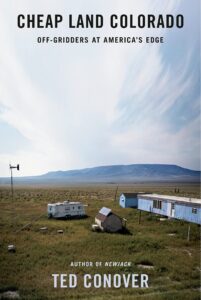
Ted Conover, Cheap Land Colorado: Off-Gridders at America’s Edge
Knopf, November 1
At this rate, we’re all going to be off-the-grid, whether we like it or not… so why not get familiar with the concept? In Cheap Land Colorado, Ted Conover heads west to live an off-grid life with a random assortment of Americans who’ve set up a community in the failed rural subdivisions of Colorado’s San Luis Valley. Though society might disdainfully call them dropouts, this collection of apocalyptic cosplayers has merely chosen to exchange one set of experiences for another, opting for a sense of space and freedom over the constraints of conventional life. –JD
Hilton Als, My Pinup
New Directions, November 1
I would read anything that Hilton Als writes—as a staff writer for the New Yorker and a theater critic, his work is always as absorbing as it is challenging. My Pinup, a memoir, seems unlike anything he’s ever published before: an account of his life in the nightclub scene, of queer longing, of romance and loss. –CS
N.K. Jemisin, The World We Make
Orbit, November 1
In her follow up (and conclusion to) The City We Became, the six human avatars of New York will have to team up with other great cities from around the world to defeat the Woman in White and mysterious Enemy and thus keep the universe from utter and total peril. It’s always the right time for a new Jemisin. –ES
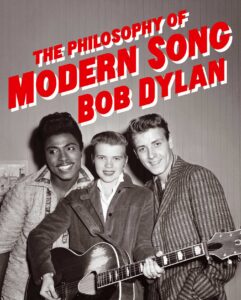
Bob Dylan, The Philosophy of Modern Song
Simon & Schuster, November 1
A new book of essays and photos from bestselling author, recent recipient of the Nobel Prize in Literature, and . . . some other thing, I think. Who’s this guy again? –ET
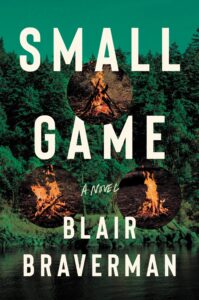
Blair Braverman, Small Game
Ecco, November 1
Blair Braverman (Welcome to the Goddamn Ice Cube and that viral Twitter thread of her sled dogs smiling) is turning to fiction, and I’m here for it. Mara teaches survival skills to rich tourist types, and when she’s approached to be a contestant on a reality show called Civilization, she agrees for the paycheck. But things don’t go as planned, and her fellow castmates might not be up to the challenge. –ES
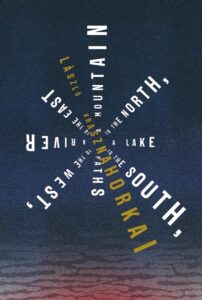
László Krasznahorkai, tr. Ottile Mulzet, A Mountain to the North, a Lake to the South, Paths to the West, a River to the East
New Directions, November 1
Something something meditation on life and death and nature… Look, it’s a newly translated novel by the National Book Award-winning Krasznahorkai. If you know you know. –JD

Franny Choi, The World Keeps Ending, and the World Goes On
Ecco, November 1
“I was born from an apocalypse / and have come to tell you what I know—which is that the apocalypse began / when Columbus praised God and lowered his anchor.” These lines, coming in the middle of the poem “The World Keeps Ending, and the World Goes On,” are a hint to what’s to come in this collection: a look at the violences of history and the world they have created as well as what’s next. Franny Choi’s poems are arresting, sharp; they demand we listen and follow her where she wants to take us. –CS
Claire Keegan, Foster
Grove Press, November 1
Claire Keegan has written four brief, nigh-on perfect books over the last 23 years. Her career began with a pair of short story collections—Antarctica (1999) and Walk the Blue Fields (2007)—that all at once announced her as one of the greatest practitioners of the short prose form at which Irish writers historically have excelled and as the heir both to the unapologetic causticity of an Anne Enright and the Christ-its-beautiful-but-grim-in-the-Irish-countryside lyricism of a John McGahern. After that followed two novellas, Foster (2010) and Small Things Like These (2021), the first of which began as a short story that won the Davy Byrne’s Irish Writing prize in 2009, then became a somewhat longer story in The New Yorker the following year, before appearing as a standalone volume. In many respects, Foster, now published by Grove, is a simple story.
It follows a young girl sent away while her mother is pregnant to live with some family friends, from whom she begins to receive the love and care she has been lacking and for whom she begins to fill the absence opened by the loss of their own child. The book, though, is elevated far above the humility of its plot and structure by the sheer brilliance of Keegan’s writing—which is to say, by her bottomless empathy for her characters, by her elegiac descriptions of the natural world, and, above all, by her total ability to inhabit the developing perspective of a child and bring the girl to life, while gripping the reader across a gulf of ironic distance with a tone and tenor that are compassionate and heartbreaking where a thousand lesser writers end up cheap and patronizing. It’s in the nature of literary journalism for critics to deem this kind of book “Among the finest stories written in English,” as The Observer, duly, did. It’s a cliché and it’s almost always bullshit or at least hyperbole. But in this case, it’s absolutely true. –EF
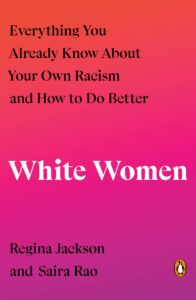
Regina Jackson and Saira Rao, White Women: Everything You Already Know About Your Own Racism and How to Do Better
Penguin Books, November 1
Regina Jackson and Saira Rao have put together a no-holds-barred manual for deconstructing one’s own white supremacy, and thus breaking down the greater patriarchal and racist structures at play. Jackson and Rao focus on the concept of “niceness”: how it’s dominated the idea of white womanhood and how white women have actively contributed to upholding the value while it also constricts and oppresses not only people of color, but white women themselves. Jackson and Rao work to help women look past the veneer of niceness to see what it actually is and does, and how true kindness is the real, raw work of calling each other out, educating ourselves, and changing the engrained facts of our white supremacist society that we often take for granted. –JH
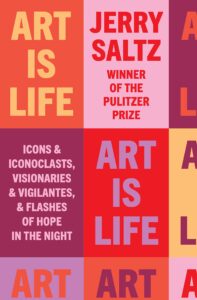
Jerry Saltz, Art Is Life: Icons and Iconoclasts, Visionaries and Vigilantes, and Flashes of Hope in the Night
Riverhead, November 1
Jerry Saltz’s Pulitzer-winning work has for decades given us countless insights into the artists who make, remake, and upend our culture. This book offers a range of his thoughts on important contemporary artists including Kara Walker, David Wojnarowicz, Marina Abramović, Kehinde Wiley, and many others, as well as musings into history, celebrity culture, and his relationship to art. –CS
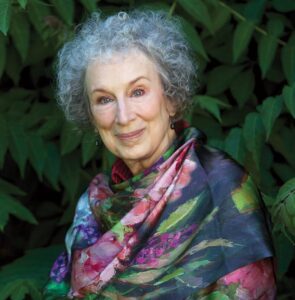
Margaret Atwood ed., Fourteen Days: An Unauthorized Gathering
Harper, November 1
Okay, I’ll bite. This is that Covid round robin book you might’ve heard about, in which each character—tenants in a Lower East Side apartment building during the early days of the pandemic—is secretly written by a different author. Including the likes of Margaret Atwood, Dave Eggers, R. L. Stine, R. O. Kwon, Neil Gaiman, Nora Roberts, and Tommy Orange, it should be an interesting experiment in collective storytelling. –ES
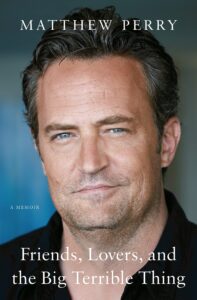
Matthew Perry, Friends, Lovers, and the Big Terrible Thing: A Memoir
Flatiron, November 1
I don’t have to read further than the author’s name to know I am reading this memoir. Friends has its fair share of cynical nay-sayers, sure, and they’re all wrong. I started watching the show when I was eight, and I now view the cast members as an extended family of sorts. Matthew Perry, i.e. Chandler Bing, was always gregarious, sweet, hilarious, and he was also inarguably going through something off-camera throughout the show. Between seasons two and four he went through drastic weight changes that he couldn’t possibly hide, giving a peek into the drug addiction he was struggling through in real life. For the first time, Perry has written about the journey of dealing with addiction while acting on the most popular show on television, offering insights on his life, love, and castmates as we’ve never seen them before. –JH
Lynn Steger Strong, Flight
Mariner, November 8
I was a fan of Lynn Steger Strong’s 2020 novel, Want, and I’m looking forward to her bringing that same sharp writing and incisive commentary to Flight, this time in a multi-perspective novel. She told EW that her elevator pitch is “a matriarch dies and a little girl goes missing,” which is enough of a teaser for me! –ES
Haruki Murakami, Novelist as a Vocation
Knopf, November 8
Haruki Murakami wears a lot of hats. During the pandemic, he became a radio DJ and a T-shirt designer for UNIQLO. But he is, first and foremost, a writer: the mind behind Kafka on the Shore, 1Q84, The Wind-Up Bird Chronicle… the list goes on. In his new book, he reflects on his career and lets us pick his brain a bit. Murakami’s fiction has an incredible surreal quality, and in Novelist as a Vocation, he gives us as intimate a look as we’re going to get into his creative process and his writing life. –KY
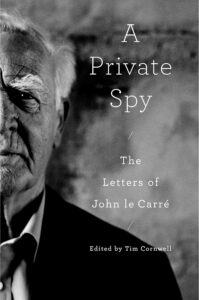
John le Carré, ed. Tim Cornwell, A Private Spy: The Letters of John le Carré
Viking, November 8
Just what it says on the tin: a collection of letters by the late literary great, sent to “writers, spies, politicians, artists, actors and public figures,” and sure to be chock full of gems. –ET
DeuxMoi, Anon Pls.
William Morrow, November 8
If you live on the Internet like the rest of us, you’ve no doubt encountered the wildly popular Instagram account @deuxmoi, the go-to for celebrity gossip. From its creator comes a fun debut novel that promises to be… everything you might expect from DeuxMoi: a celebrity stylist’s assistant starts a—you guessed it—celebrity gossip Instagram account one drunken night, and it goes viral. Suddenly, she’s fielding juicy anonymous tips and navigating the weird world of (anonymous) Internet fame. Basically, if you love Gossip Girl, this one’s for you. XOXO. –KY
Russell Banks, The Magic Kingdom
Knopf, November 8
In the latest novel from the author of Rule of the Bone and Cloudspitter, a property speculator looks back on his life in the first half of the 20th century. Margaret Atwood calls it “eerily timely,” and Paul Auster writes that “Banks is still working at full blast, creating work as good as anything he has ever done and—is it possible?—perhaps even better.” Huge if true! –ET
Kevin Wilson, Now is Not the Time to Panic
Ecco, November 8
Frankie Budge and Zeke are misfit teens in small, sad Coalfield, Tennessee. Together they make some cool, weird signs and plaster them all over town, sparking rumors and fear beyond anything they could have imagined. Twenty years later, Frances Eleanor Budge is a famous author, happily married with a great kid. When she receives a call from a journalist asking questions about “the Coalfield Panic of 1996,” Frances’s perfect life could be upended. Wilson’s novels often circle around young friendship and a mystery that makes the past present; the careful unpacking of untold secrets has a ripple effect that moves the narrative along, but it’s Wilson’s ability to pinpoint the most important parts of friendship and parental love that make each novel a must-read. –EF
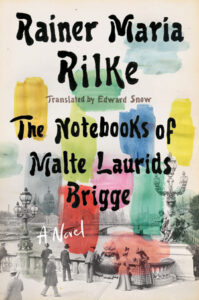
Rainer Maria Rilke, tr. Edward Snow, Notebooks of Malte Laurids Brigge
W.W. Norton, November 15
A new translation of Rilke’s only novel, a coming-of-age tale originally published in 1910, which as the publisher puts it, “confronts strikingly contemporary concerns of authorship, empathy, and the differences between appearances and reality.” Take me to the death-obsessed poet in the Parisian garret! –ET
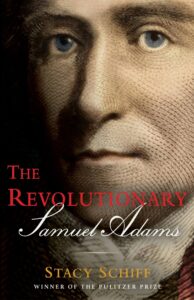
Stacy Schiff, The Revolutionary Samuel Adams
Little, Brown, November 15
Stacy Schiff’s biographies of Vera Nabokov, Cleopatra and the witches of Salem are must reads for their novelistic, thriller-like propulsion that make history more than fun, but literature. Her newest biography is of Samuel Adams, remembered as America’s founding father and a revolutionary leader. But Schiff tells the full story of Adams—how he grew from “the listless, failing son of a wealthy family” to the “silver-tongued revolutionary who rallied the likes of John Hancock and John Adams behind him.” –EF
Douglas Brinkley, Silent Spring Revolution: John F. Kennedy, Rachel Carson, Lyndon Johnson, Richard Nixon, and the Great Environmental Awakening
Harper, November 15
From bestselling historian Douglas Brinkley, a detailed history of the rise and energy of environmental activism during the sixties—a kind of revolution it looks like we’re going to need yet again. –ET
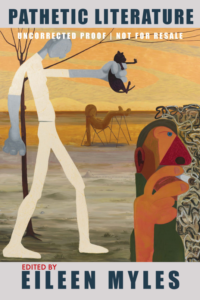
Eileen Myles, ed., Pathetic Literature
Grove Press, November 15
Eileen Myles (of Chelsea Girls and Cool for You) is reclaiming “pathetic.” Tracing the word back to its roots, they are taking us on a great literary tour of pathos, of feeling. Reaching across continents and genres, this anthology collects poetry, prose, and drama from the likes of Jorge Luis Borges, Gwendolyn Brooks, Lucille Clifton, Victoria Chang, and Qiu Miaojin (a personal favorite). When else does this spectacular gang get together under one roof? It’s a call for a rare kind of emotional honesty and earnestness and a response to our embarrassment over feeling feelings. –KY
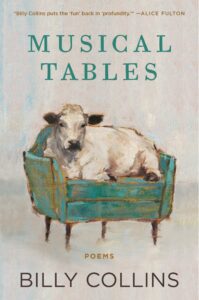
Billy Collins, Musical Tables
Random House, November 15
I consider the phrase “famous poet” to be an oxymoron, except for Billy Collins. The onetime poet laureate is back with a collection of entirely new poems, each just a handful of lines. Collins has said that the short poem is a sort of test for a poet: just as an artist should be able to draw a simple chicken, the poet should be able to channel meaning, emotion, profundity, and humor all through a couple of lines. Perhaps Collins is also aware of society’s rapidly diminishing attention-span, but he has created an undaunting, readable book of poetry that will appeal to all ages and hit you where it hurts. –JH
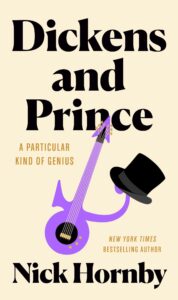
Nick Hornby, Dickens and Prince: A Particular Kind of Genius
Riverhead, November 15
Charles Dickens and Prince don’t jump off the page as a pair, but that’s the point of this book by the author of High Fidelity. Hornby was inspired by the two artists’ incredible productivity to begin drawing more connections between them, and the result, according to the publisher, is “a lively, stimulating rumination on the creativity, flamboyance, discipline, and soul it takes to produce.” –ET
Brigitta Olubas, Shirley Hazzard: A Writing Life
FSG, November 15
I came late to Shirley Hazzard’s brutal, brilliant short stories—but now I’m a full devotee. Thus I’m looking forward to reading the first biography of Hazzard, written by Brigitta Olubas, Hazzard’s authorized biographer. From an archive of letters, diaries, and notebooks, plus memories of her surviving friends and family, Olubas puts together a life that spanned continents to create a portrait of a writer who self-fashioned a persona, and a life, to be rediscovered alongside her fiction. –EF
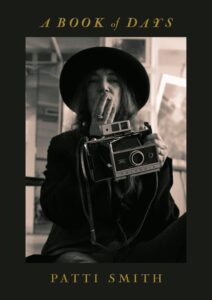
Patti Smith, A Book of Days
Random House, November 15
“Inspired by her Instagram” isn’t exactly the magic phrase that gets me excited for a new book, but for Patti Smith, I’ll make an exception. If you follow Smith, you’ll understand that she doesn’t use the app like a typical highlight-reel—she posts every day, sometimes a person, sometimes a landscape, sometimes an object, along with a small poem-like caption. She’s amassed quite a following by documenting the world in this way: it already reads like a photo diary. Taken all together, we see what she sees, we read what she thinks, and we understand that life is recognizable, and mundane, and poignant, and sometimes it takes looking through someone else’s eyes to see the beauty that’s right in front of us. –JH
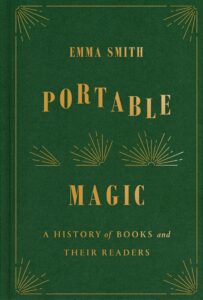
Emma Smith, Portable Magic: A History of Books and Their Readers
Knopf, November 15
I like books, so a history of the book is definitely on my TBR pile. In Portable Magic, Smith disrupts the Western myth that the Gutenberg Press was the original printing project, and traces the history of the book as object—from “decorative gift books that radicalized women to join the anti-slavery movement” to “paperbacks weaponized during World War II.” When we praise books, we’re often talking about the content inside them—but the story here is the relationship between book and reader and the spines, pages, and little rectangles that we carry with us. –EF
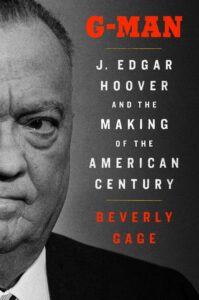
Beverly Gage, G-Man: J. Edgar Hoover and the Making of the American Century
Viking, November 22
A major (and massive, at 864 pages) new biography of J. Edgar Hoover from professor of 20th-century American history at Yale and the author of The Day Wall Street Exploded, which according to its publisher “places Hoover back where he once stood in American political history—not at the fringes, but at the center—and uses his story to explain the trajectories of governance, policing, race, ideology, political culture, and federal power as they evolved over the course of the 20th century.” –ET
Seamus Heaney, ed. Marco Sonzogni, The Complete Translations
FSG, November 22
The world is divided and divisive, but surely we can all agree on Seamus Heaney. This edition of his translations, edited by Marco Sonzogni, contains not only the works themselves but Heaney’s own writings on them, along with other context. For the completists! –ET
Heather Radke, Butts: A Backstory
Avid Reader, November 22
Heather Radke’s social history of female butts promises to be a deeply researched and thoroughly fascinating look (ogle?) at a body part that has long captured the cultural imagination. Radke talks to evolutionary biologists, models, and fitness gurus, and dives into the history of the racist objectification of women like Sarah Bartmann and Josephine Baker in an effort to understand our complex relationship with the butt. –JG
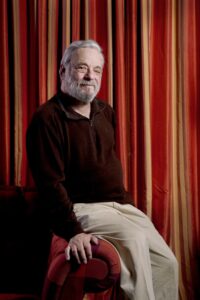
D.T. Max, Finale: Last Interviews with Stephen Sondheim
Harper, November 22
Earlier this year, New Yorker staff writer and David Foster Wallace biographer D.T. Max published an edited version of a series of interviews he’d conducted with legendary composer Stephen Sondheim, who died in November 2021. The interviews were meant to support a profile timed to coincide with a new musical Sondheim was working on, but now Max is publishing them, unedited, as a commemorative collection that is sure to be fascinating to Sondheim’s many fans. –ET
Makoto Shinkai and Naruki Nagakawa, tr. Ginny Tapley Takemori, She and Her Cat: Stories
Atria, November 22
Talk about a book after my own heart. This collection of four interrelated stories from renowned anime director Makoto Shinkai and the translator of Convenience Store Woman is already a bestseller in Japan. Each of the four stories is about a woman, her cat, and the search for connection in a sometimes lonely, oftentimes extraordinary world. (It hurts to be earnest, but in this case I AM.) –ES
Jason McBride, Eat Your Mind: The Radical Life and Work of Kathy Acker
Simon & Schuster, November 29
The first “full-scale” authorized biography of the legendary experimental writer draws on interviews with those who knew her along with, early drafts, letters, and private journals. “Unafraid to celebrate the complex intellectual histories that form both outer skin and inner guts of Acker’s work, her interweaving of ideology and aesthetics, her passionate conviction that the avant-garde was something to be lived as much as written,” writes Tom McCarthy, “McBride has produced a study genuinely faithful to his brilliant, difficult subject.” At last!
DECEMBER
Jane Smiley, A Dangerous Business
Knopf, December 6
The latest from Smiley, author of the Pulitzer Prize-winning A Thousand Acres, is a murder mystery set in the Wild West—1851 California. As usual, it’s young women who start turning up dead (That titular dangerous business? It’s being a woman.), but—twist—this time the detectives are women too—two prostitutes who work at the local brothel. This is a Jane Smiley novel, so it should be loads of fun. –ET
Sam Lipsyte, No One Left to Come Looking for You
Simon & Schuster, December 6
Sam Lipsyte’s latest is set in the early music scene in 1990s New York City (you know, when musicians with no nepotism working in their favor could still afford to live there). Jack S., the bass player in an up-and-coming band, has to track down the band’s lead singer, who goes missing along with Jack’s bass a few days before the band’s biggest gig. From there, the mystery unfolds, complete with real estate barons, hitmen, and a “deranged if prophetic postwar novelist.” Sam Lipsyte’s work is reliably hilarious—I have an uncomfortable memory of laughing uncontrollably over Home Land on a plane—and perfectly dark. I can’t wait to embarrass myself in public with this one. –JG
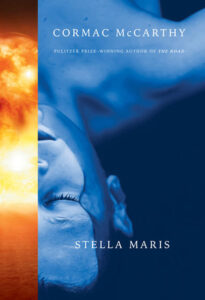
Cormac McCarthy, Stella Maris
Knopf, December 6
The second McCarthy of the year—after a sixteen year drought—is also his first to feature a female protagonist. That would be Alicia, graduate student of mathematics and sister of The Passenger‘s Bobby. Her book, which is about half as long, is set in 1972 and told as a transcript between her and her doctor, who has diagnosed her with paranoid schizophrenia. –ET
Audur Ava Ólafsdóttir, tr. Brian FitzGibbon, Animal Life
Black Cat, December 6
The latest from acclaimed Icelandic author Auður Ava Ólafsdóttir (if you’re not already familiar with the poet, playwright, novelist, and pop lyricist whose work has been awarded both the Nordic Council Literature Prize and Icelandic Literature Prize, well, now’s the time to change that) is the story of a Reykjavik midwife from a long line of midwives who, as a winter storm races toward the city, discovers decades worth of letters and manuscripts hidden amongst her grandaunt’s clutter. –DS
Robin Coste Lewis, To the Realization of Perfect Helplessness
Knopf, December 6
In 2015, Robin Coste Lewis won the National Book Award for her debut poetry collection, Voyage of the Sable Venus and Other Poems; her newest book promises to be equally revolutionary. It began with a cache of family photographs that Lewis found under her grandmother’s bed, which she has now braided with poetry to create, as her publisher puts it, “a lyrical documentary about Black intimacy.” I’m always here for new literary ways of framing and exploring history and poetry, so I’m looking forward to diving in. –ET
Kevin Powell, Grocery Shopping with My Mother
Soft Skull, December 6
Kevin Powell’s forthcoming poetry collection started on social media and evolved into 32 new poems in conversation with Stevie Wonder, Sidney Poitier, bell hooks, and many more cultural icons. As he accompanies his elderly and ill mother on her weekly grocery trips in Jersey City, he hears her in a new way, and brings those stories to us in this innovative, poignant collection. –ES
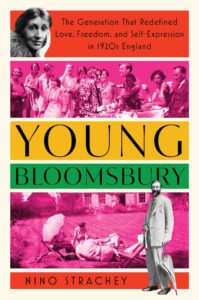
Nino Strachey, Young Bloomsbury: The Generation That Redefined Love, Freedom, and Self-Expression in 1920s England
Atria, December 6
As your resident Virginia Woolf stan, I love to read about the Bloomsbury Group—but I don’t know much about the second generation, which is what Strachey (yes, that kind of Strachey) explores here. Can’t wait to find out. –ET
Sabrina Imbler, How Far the Light Reaches: A Life in Ten Sea Creatures
Little, Brown, December 6
Each essay in science and conservation journalist Imbler’s debut collection tells the story of a sea creature, organisms living under some of the planet’s harshest conditions, and plaits that story together with one of their own, connecting one kind of hostile environment to another. Ed Yong called it “a miraculous, transcendental book,” and wrote that in these essays, “Imbler has choreographed a dance of metaphor between the wonders of the ocean’s creatures and the poignancy of human experience, each enriching the other in surprising and profound ways. To write with such grace, skill, and wisdom would be impressive enough; to have done so in their first major work is truly breathtaking.” –ET


